#i thought we loved bugs doomed by the narrative
Text

i deleted this ask after screenshotting bc i didnt want to even give this the time of day but this is objectively the funniest anon hate i think ive ever gotten. i am holding this person in particular alone at gunpoint to see gay old man bugs. have u ever heard of muting tags and blocking people. you come to the lurimol coiner's blog and ask me to not post lurimol. death by 1 thousand suns blast
in conclusion, thanks to @salthien:

#?????????#im so fucking bewildered#i do try not to spam the maintags or post on them more than twice per thing but like#???#its not big for a reason' yes the reason is cowardice#hollow knight nation do you fuck with the vision#i thought we loved bugs doomed by the narrative#pspspsps i can give you a love that haunts the narrative so badly#oooo you want old man yaoi so badly you want undying devotion you want a desire to exist through the mundane so badly it makes them sick#i can give you a horrible end to something beautiful. i can give you a beautiful end to something horrible.#come. let us take lurimol together.
103 notes
·
View notes
Note
Recently when I tried to figure out why Turbo went, well Turbo I realized something. At first I came to the conclusion that it was because of his code, but then I remembered the plot of the movie and completely scrapped it (though there might still be some merit with it). Then i thought that “hey, this fucker has been surrounded by picters of himself since he was plugged in, hes the star of the show, so of course he would get a huge ego out of it, said ego also being his subsequent down fall, but why diden't Felix also fall in the same trap? he was the hero of his game too”. And I think it's because he wasn't alone. Now I'm not gonna overshadow the twins. They're there too but considering how Turbo treated them in the little screen time we got to see them together I doubt that they were on good terms, they might have been in the games early days but I digress.
Felix, unlike Turbo, had friends within his game, a small community to look out for him just as he does for them. They made him pies, dedicated parties to him, cherished him, but Turbo?. Who was gonna bake him pies? Who was gonna throw parties for him? Who was gonna cherish him? The Twins? FUCK no. And i think that's what tipped him over the edge, his ego made him push oway his friends and coworkers just to get a sliver of stardom. And when he had all the attention ripped oway from him by another racing game had to have been his last straw (you saw the face he pulled in the flashback. God, just imagine seeing one of your neighbors destroy their own career live, in broad daylight too, must have been horrifying). I love a good character that just dooms themselves to the narrative with their own actions (Turbo was a whore for the limelight).
Going a bit of topic here but “going Turbo” wouldn't work if it was any other main character in the movie, “going Ralph” just doesn't work. Could be because “Turbo” isn't really a name, it's a word, the name of his game, “Turbo Time”. So my proposal is that whenever there is an au where say, Calhoun game jumps (for whatever reason) they call it solo mission. “You're not going on a solo mission are you?” sounds more riveting, to me, and in character for Calhoun. Perhaps that was the last thing she said to her men before she left. For Vanellope id imagen something like “going on a sugar rush” and something about crashing. Because when the sugar rush ends you typically crash.
And that gave me another thought, how many “Turbos” are there out there? How many characters went outside their game or against their script on working hours. How many of these incidents were considered bugs or glitches (how many were turned into creepypastas). It feels like a huge liability risk and the only instances of us hearing about it is with Turbo, which I find strange. Is it like a silent rule? That no one is allowed to leave their game and that's it? That's a super thin line, like yeah you can argue that its there to keep them alive but who told them that? And the second movie doesn't help that, it's just, eurghhh, i don't like the second movieeeee… But it does give the homeless game characters a chance to find a potential new home. There's so much out there in the wilde wilde internet to explore and find new potential in, to not be tied to the arcade has to be a bit liberating for some :)
Sorry for the sudden rant, I just got a kick and could not not write this down.
DONT BE SORRY !! GO OFF!!!! THESE ARE REALLY COOL DISCUSSION POINTS
The whole turbo vs Felix thing really stuck out to me. Turbo Living in a game with only 2 other people who hate him ? While Felix gets praise and attention from dozens? No wonder Turbo went haywire 👀 like do you think he envied Felix ………
#long post#TRUE#going on a ‘solo mission’ and ‘a sugar rush’ really tickle my brain#also I saw your ask about your oc SHES SOO EPIC#they better add jolly delightning to the roster#ask#turbo#wreck it ralph
25 notes
·
View notes
Note
Ryu for the ask game?

Omg thank you all for asking this character I totally didn't specifically ask to be asked about and who I love a perfectly normal amount giggles and twirls hair
Favorite thing about them:
He really strives to be good. Good at something, anything, but just good. He constantly fights against his own narrative and I find it very admirable. He was doomed from the start to fail and I feel like he knows that, and I don't know how he finds the strength to keep trying anyway but he does and it's really neat. Maybe his skull really is too thick to listen to the words of a predetermined fate. Just the whole thing about being the tragic character of all time is very compelling to me. Also, his inherently meaningless seeking a validation to live he shares with Atsushi makes me like him for reasons similar to Atsushi.
Least favorite thing about them:
MMMHHHH,,,,,,,,,,,,,, Like I really like his flaws, I'm happy he has them, I wouldn't like him the same if he didn't? But at least I can safely say it's someone I wouldn't like to deal with irl lol.
Favorite line:
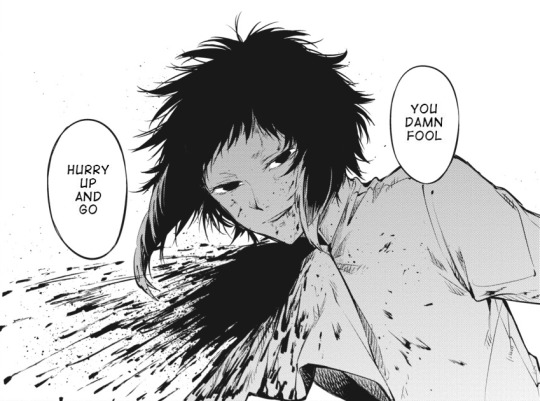
<3
brOTP:
GIN AND RYUUNOSUKE!!!!! They make me go insane. Holding hands while working in the darkness fr. Being lonely together. Someone who's seen you at your worst FOR REAL but still hasn't abandoned you for some unfathomable reason. I don't know what goes through your mind but I see your eyes and they're the same as mine.
Also mmmmhhhh sskk. Chuuaku. Kyouka and Akutagawa though I'm not sure that can count as brotp. Lucy and Akutagawa.
OTP:
Sskk is like, pretty cool if you ask me <3 Imagine a fully rotten individual who was never meant for anything but killing and making people suffer since they were born, loving someone. Imagine the “I will kill you” being replaced by “I will love you”. But also imagine being so deeply interlaced with another person, your existence just can't escape the other. Destined to be together and destined to fall apart at the same time. I'll never be able to move forward until I've denied your very being but if you die my existence will stop having a meaning. Don't tell me what to do. I will follow you to the end of the world. I will kill you. I will die for you. I just think them <333
Chuuaku too, have already spent countless words on them but. Finally a ship that's real and relatable. Finally something that doesn't feel ethereal and idealized and distant and untouchable, but real and stained and messy and human. What if I didn't understand you but I wanted to. What if we walked together home. They're neat <333
Other Akutagawa ships I vibe with would be Akutagawa × Beast Atsushi, Akutagawa × Tachihara, Akutagawa × Kajii, akuatsulucy...
nOTP:
🤨🤔🧐
Random headcanon:
I think he's numb to pain. And I don't mean it in the “oh no he suffered so much he's used to it at this point :((( ” pitying way, I mean it in the “he's felt such very strong spikes of pain in multiple occasions, his pain detectors just gave out” way. The “he won't notice a wound because he just can't feel it” way.
Unpopular opinion:
In the last period, it's been bugging me a little how Akutagawa and Dazai's relationship is portrayed in fancontent. It's just always so black and white, while actually I feel like there's so much nuisance to it that just gets lost in fandom. Yes, the way Dazai treated Akutagawa was horrible and inhuman. Yes, to an extent Dazai thought highly of Akutagawa's abilities and cared for him. Yes, Akutagawa was victim of Dazai's heavy abuse. No, Akutagawa isn't entirely subject to Dazai, he explicitly gave his consent to an hard training (which, I reiterate, doesn't justify it at all; but does give more nuisance to the whole situation) and did oppose him in multiple occasions. I just think sometimes Akutagawa is framed as this helpless damsel in distress and Dazai as this inhuman monster whereas their relationship is indeed unhealthy, but still so much more complex than that. And just, really, I feel like portraying Akutagawa so helpless in Dazai's hands makes him a disservice? Even though in canon he said to be willing to kill Dazai on multiple occasions, has punched him more than once, has told straight “no”s to his face. I just think... People tend to make Akutagawa a lot less aware than he actually is. Here, there it is, that's what really troubles me. Akutagawa does know Dazai hurt him. He does know Dazai's treatment of him was cruel, and unfair. He is aware of what Dazai did to him. That just can't stop him from seeking his approval, even against his will. But to think that Akutagawa is blind to everything Dazai did to him does him a disservice, because he really is not that stupid or with completely null self-awareness. The fact that he tends to run after Dazai despite knowing how much he's hurt him is just further proof of how complex and human-like Akutagawa's psyche is.
Also, he does NOT like reading. All my homies hate booknerd Akutagawa.
Song i associate with them:
Well, I associate with him songs I definitely shouldn't associate with him alcfjyalfiygaslfiya. One song I always listen to that infallibly makes me think of Akutagawa although it really DOES NOT fit Akutagawa is Patchwork Staccato by toa, with its delicious sewing symbolism and words of toxic codependent relationships and the line you, I'd really rather you just stop existing I just can't help but link to him. Or Vampire by DECO*27, which. self-explanatory. but really shouldn't be associated with Akutagawa. On the side of songs that do fit Akutagawa, Tokyo Teddy Bear (AKUTAGAWA SEWING SYMBOLISM MY ULTIMATE BELOVED) and Lost One's Weeping (“Who stained that heart black? Who was it? Who was it!?” “Can you untie the rope around his neck? Can we keep going like this? What're you gonna do? I don't care anymore!” “But why does this lump in our hearts // Say we want to disappear? Say we want to die?” “Can you remember the dreams of your childhood? Who threw those dreams in a ditch? Who was it!? You know who it was! When are you going to grow up!? What is a grown-up anyway? Who has the answers? What're you gonna do? I don't care anymore!”) and basically everything from Neru. And Rolling Girl by wowaka, obviously.
Favorite picture of them:
Favourite panel from the manga: The one above LMAO. I. Really like that scene and think it's the most beautiful climax Akutagawa's character arc could have ever had. Here's my second favourite though:
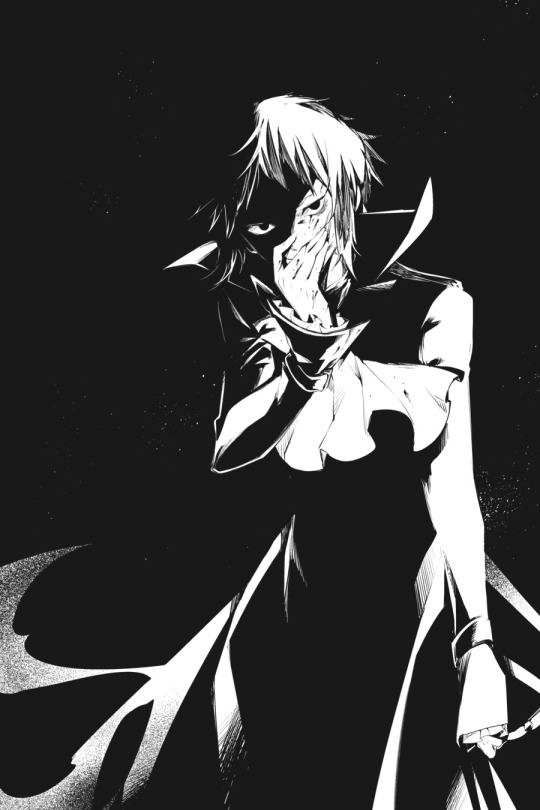
Favourite illustration: There's a lot of beautiful ones...

Favourite illustration in the anime art style:

BUT ALSO this please don't make me choose. And various anime screencaps. I feel like I'm cheating but maybe it's unethical to ask from me to pick a favourite Akutagawa picture in the first place.
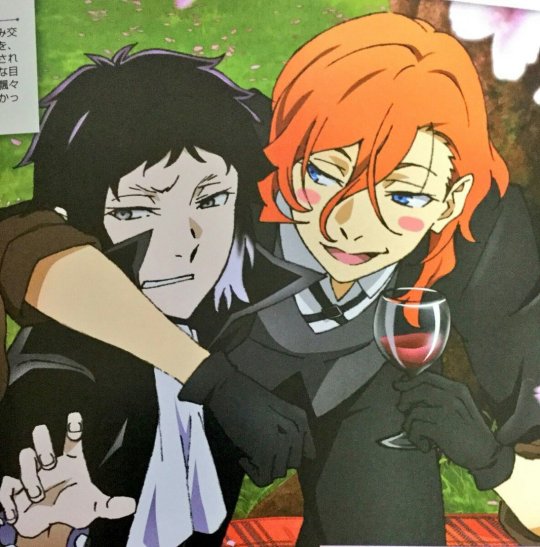
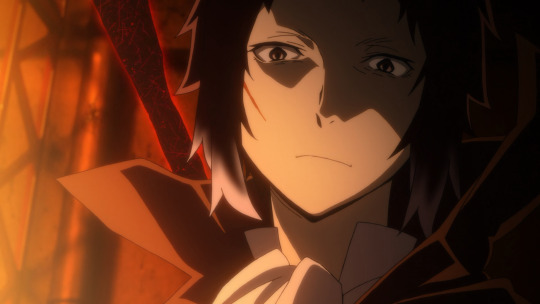

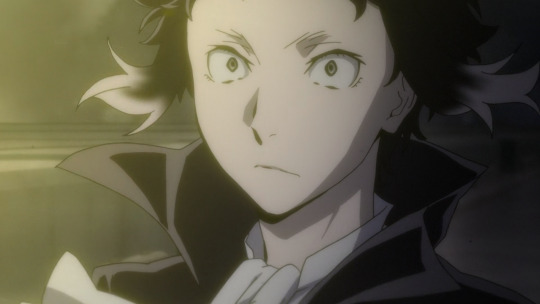
Favourite Mayoi card:

Send me a character?
#Thank you both for asking him!!! <333#For the text color I have picked from the character's icons from some old bsdanime twitter campaign#With Akutagawa it's hex. 0d0015 and I feel so silly changing it when it's near to completely indistinguishable from pure black text...#ryūnosuke akutagawa#bsd#mine#people asks me stuff#You kind of get what kind of series bsd is when every song you associate with it opens with a big banner#“WARNING! This subject has questionable content‚ such as: SUICIDE THEMES.” on the Vocaloid Wiki
13 notes
·
View notes
Text
i uhhhh finished 1899
(spoilers for all episodes below the cut, don't read if you haven't finished watching!)
GOD this show!!!!! i have been screaming internally for like 10 hours now and this is going to be so incoherent sorry
who else thinks the space ship at the end is just another simulation and the start of another loop? the season beginning and ending with maura waking up to a 'letter' from her 'brother', the ship also being called the prometheus, the technology also seeming out of place for the time period, being trapped in the vastness of space instead of the vastness of the ocean but it's still a prison.... could be totally wrong and it's just parallels but i trust nothing and no one on this (space)ship
literally every character on this show is so fucked up (affectionate) i am studying them all like bugs
i did guess that the boy was maura's son but i thought daniel was either an older version of him or her brother, the husband reveal fully knocked me on my ass because up until that point i was convinced they were setting up a maura/eyk romance which i 100% think was intentional clearly they have some connection outside of the simulation and the heart wants what it wants when you have amnesia lmao it's so valid of her tbh i too am making eyes at andreas in that coat
also hear me out what if daniel and elliot are both dead in the original reality (or never existed at all) and the versions of them that we see are actually AI created by maura to cope with her trauma... seems like elliot at least is dead or dying considering the grave bunker and his memory in the chair... if maura is the creator of the simulation, maybe she's also their Creator? what if she can wake up but they never can
tinfoil hat firmly ON
or alternatively what if daniel is actually the antagonist leading her deeper into the simulation OR maybe they're both literally exactly what they seem to be and he's just a guy who loves his wife and wants to save her from herself and also her fucked up family and also maybe loves his son sometimes i am sooooooo full of shit lmao it's 3am bestie
also i was NOT expecting olek and ling yi to fuck me up like that... they speak the language of LOVE ok do not perceive me
and speaking of that i've seen some people say that they feel like the simulation reveal took away the gravity of the death scenes but it didn't at all for me, for one everyone jumping overboard like lemmings off a cliff while you hear their bodies thunk thunk thunk was fucking haunting and that was the bulk of the deaths, but also i just think the implications of the whole thing fuck me up more on a psychological level when it comes to the main characters... they are all doomed by the narrative, new liver same eagles, this is going to happen again and again because they can't escape their emotions, they can't escape love or hate or rage or fear or desire or grief, they can't escape what it means to be human no matter how deep into their dreams and nightmares they go at the core nothing ever changes and it's fucking tragic
in other words, i ugly cried through most of ep 7
and then there's the triangle symbolism, the tattoos, 'what is lost will be found', 1011, some of the names being anagrams, etc etc
THERE ARE SO MANY LAYERS
everything is too real nothing is real at all they're alive they're dead they're in purgatory they're in a hell of their own making they are the glitch in the matrix they are the (literal) bugs in the code i am going to scream
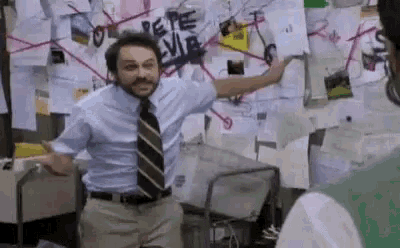
actual footage of me making this post
also i am definitely going to gif the show but i have a really busy week coming up and i'll be out of town for most of it so it might be a while unfortunately but just know the gifs are coming eventually they are living in my little brain as we speak
ok i'm going to shut up now if you read this far thank you, i love you, and i'm sorry lmao
#(inhales deeply)#(screams)#rj.txt#1899#1899 spoilers#i made a short post and then was like no#i am going to release the demons from my drafts
54 notes
·
View notes
Text
Okay, so this was originally meant to be an analysis of The Warrior in the Woods, namely how the titular Warrior in the short seems to evoke both Summer and Raven, and through them both; Ruby. As well as how the Boy in the story likewise seems to evoke Taiyang. And ultimately the possible symbolism of Summer, Raven and Ruby all being tied together in this representation of the Warrior. Or how the Boy’s love for the Warrior being very much a doomed, tragic love that could never be returned could represent that Taiyang’s own love for both Summer and Raven was likewise never meant to truly be.
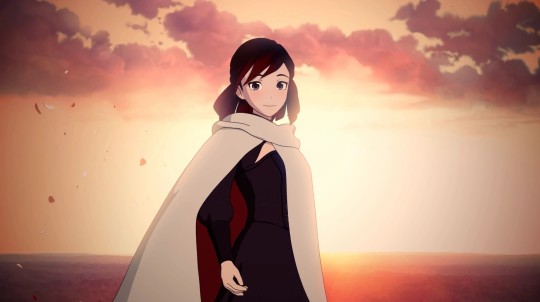
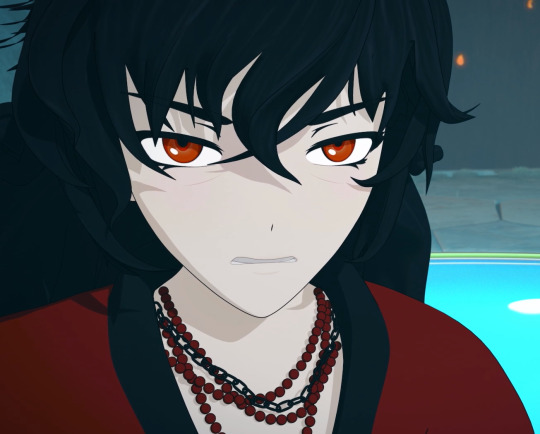
But, because this involved analyzing Summer and Raven together along with Ruby, and because this is ME we’re talking about, there was obviously going to be some Rosebird theorizing. And perhaps rather predictably, all that Rosebird theorizing led me right back down the ‘Raven is secretly Ruby’s real dad’ theory rabbit hole and left me with yet another reason why this utterly bonkers theory makes way too much sense that I just HAD to put down.
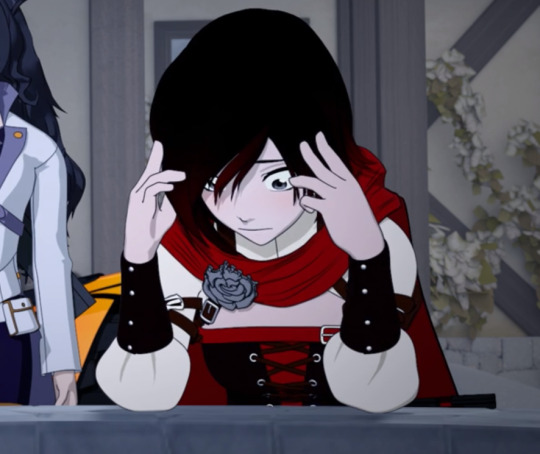
And so, I thought I’d subject that lot of you to my half-crazed ramblings. Enjoy!
So this is really the big thing that just keeps bugging me about Raven, and why I can’t help but come back to this theory that Summer and Raven were partners, lovers or even that Raven is Ruby’s real dad:
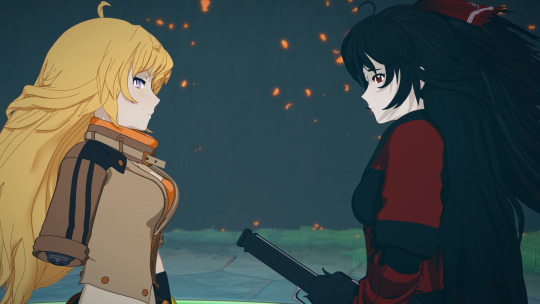
CRWBY could have given Raven basically any color scheme. Silver and blue, black and gold, white hair, grey hair, or even strawberry blonde, and Raven’s design would still totally work as Yang’s mother. Because Yang got her color-scheme from Tai, and her hairstyle, facial features and much of her body-type from Raven. The fact that Raven’s color-scheme in the show is nothing like Yang’s and yet nobody would question that these two are mother and daughter is proof of this. Again, CRWBY could have picked just about any color scheme to give Raven.
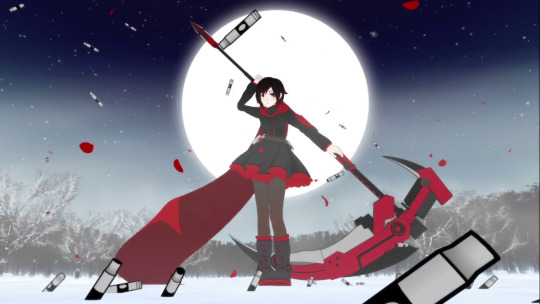
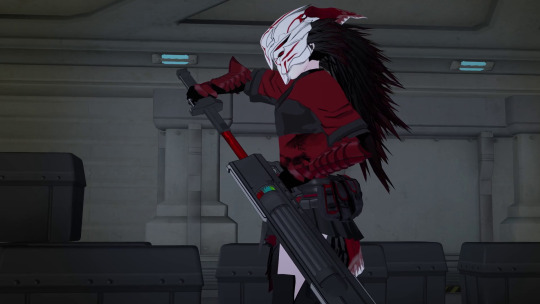
And yet, CRWBY ended up giving her RUBY’S colors. That exact same red and black that Ruby started the show with. It really is uncanny how similar Ruby and Raven look. Let’s face it, Raven could absolutely be confused to be Ruby’s mother if someone hadn’t seen Summer before.
Heck, there are even clear parallels in how Ruby and Yang ‘inherited’ their designs: Both Ruby and Yang clearly got their hairstyles, facial features and most of their body-type from their mothers; Ruby from Summer and Yang from Raven. And yet, while Yang got her color-scheme from Tai, Ruby clearly did not. While at the same time, we have Raven standing here with exactly that color scheme that Ruby clearly didn’t inherit from Tai. It’s like there is this obvious piece missing from Ruby’s design ‘lineage’, and Raven provides a piece that fits PERFECTLY into that empty space.
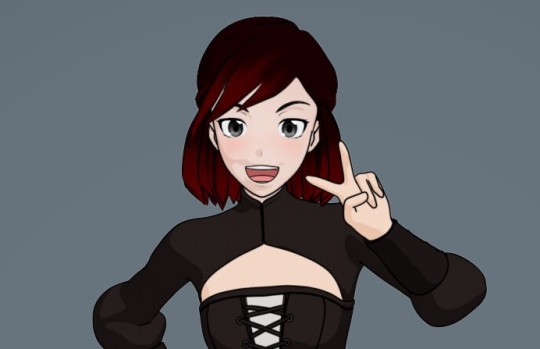
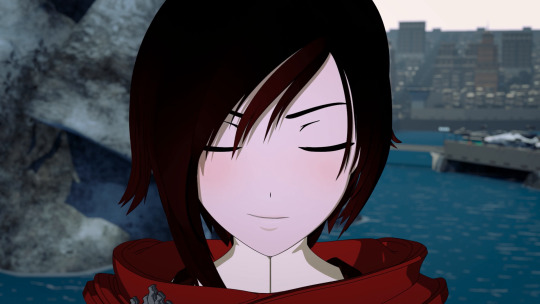
Hell, now that we’ve gotten Summer’s actual character model, we can see that she clearly has a hair color that is a lighter shade of red than Ruby’s! Ruby’s hair is a darker shade than her mother’s hair, which all but screams that her father should have dark hair.
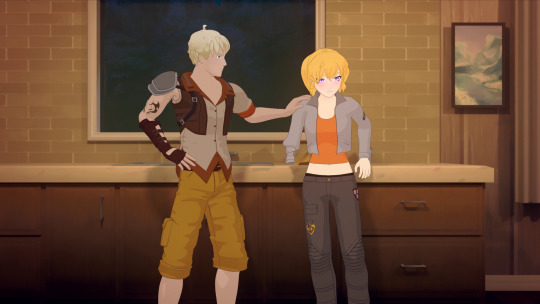
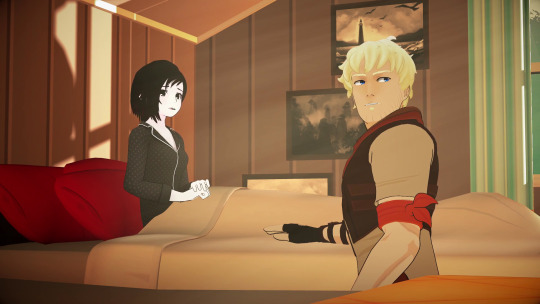
It’s the fact that these design choices all feel very deliberate on the part of CRWBY that really sticks out to me. They clearly put thought into designing Raven and Tai to each have their own different likeness to Yang. Just at a glance, the resemblance Yang has to both Raven and Tai is obvious. And then CRWBY just… didn’t do that with Ruby and Tai. They made sure Summer has a clear visual resemblance to Ruby, but Tai doesn’t. They could have given Tai some kind of clear visual resemblance to both Ruby and Yang, but they DIDN’T. Instead, it is RAVEN who has the clear visual resemblance to BOTH Ruby and Yang.
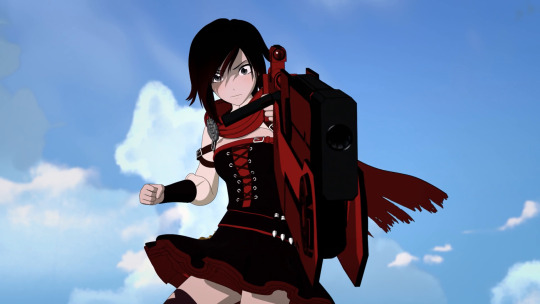
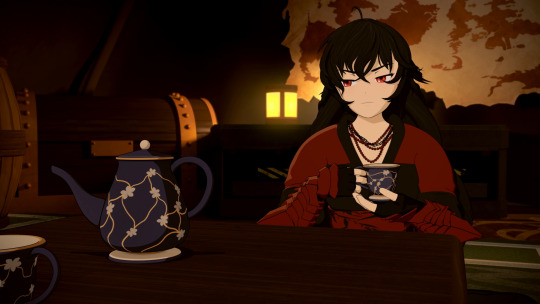
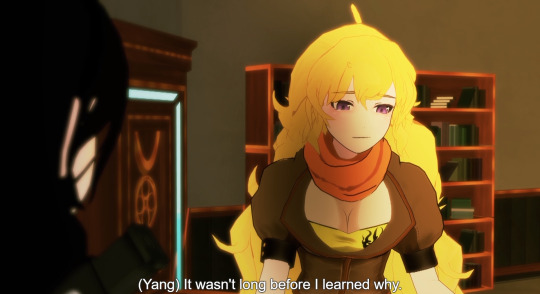
They chose to give Raven the same color-scheme as Ruby. They chose to make Taiyang’s design look so different from Ruby’s. The current narrative of the story is claiming that Summer and Raven are the respective mothers of Ruby and Yang while Taiyang is the father to both girls. Yet the creators have seemingly made sure that Summer has a clear resemblance to Ruby, but not Yang. That Taiyang has a clear resemblance to Yang, but not Ruby. And it is RAVEN who has a clear resemblance to BOTH girls.
I ask you, WHY else would they do this? This has ALL the signs of a BIG dramatic twist that’s due to happen sometime in the future. To me this all feels like a repeat of the ‘Spring Maiden’ reveal back in Volume 5. Like CRWBY has been hiding this huge reveal right in plain sight of everyone and nobody is seeing it coming.
Even if CRWBY isn’t going for a full-blown ‘Raven is Ruby’s real dad’ reveal, I feel there has got to be SOMETHING they are building to. The story thus far has given no indication of any kind of connection between Ruby and Raven, yet we have all these character-design choices just SCREAMING that there should be one! Frankly, I have no idea what else this connection could be but CRWBY does have a habit of NOT being predictable. But until I think of a better explanation or CRWBY provides one…
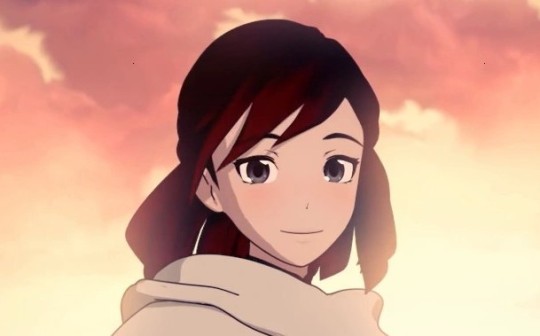
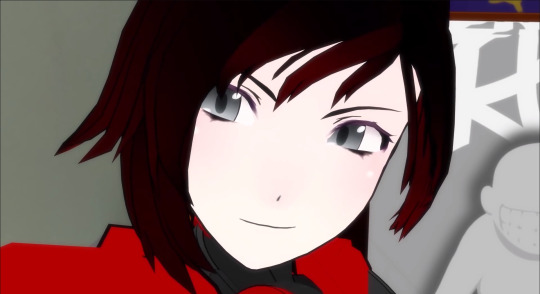
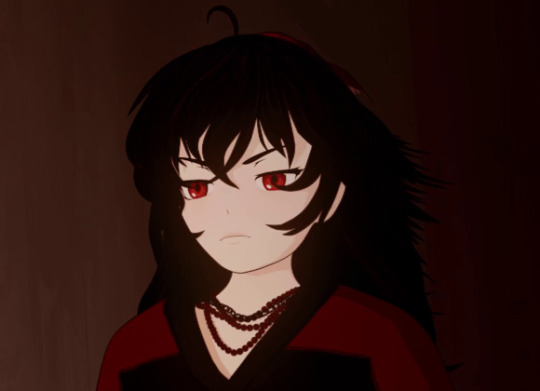
Yeah, Raven is absolutely Ruby’s dad.
#rwby#rwby analysis#crazed rwby ramblings#Summer Rose#Raven Branwen#Ruby Rose#Rosebird#rosebird parents#raven is ruby's dad#back on this hot bit of crazy#and it still feels WAY more plausible than it has any right to be#i will stop talking about this theory when it stops MAKING SO MUCH SENSE
162 notes
·
View notes
Text
one thing that bugs me within HZD fandom—or at least in a lot of reddit threads and the occasional tumblr note—is how the discussion of Aloy as the chosen one because of the circumstances of her birth always gets reframed around [REDACTED] in a way that discredits Aloy.
I do love the “hero is a rando” stories as much as the next person, but what I like about HZD is that it sets up Aloy to be some incredible savior and then it turns out... well, she might do cool things, but she’s kind of a jerk, actually! and she has every right to not want to help most people when she’s been hurt and mistreated by them for all of her young life.
Aloy is a hero, yes, but not because of her birth, but because she chooses to be one. and it’s a hard choice for her, because her natural inclination is to help herself—which is an understandable trait now that she is old enough to try to give herself what she was denied for nearly twenty years—and I like that they keep stressing that.
now that we’re under the cut I’m gonna talk spoilers.
Aloy is a great fighter and impressive machine-hunter and she is very smart, but that’s not because she’s Elisabet’s clone, but because she had to develop those skills to survive. every part about her personality and skillset can really be attributed to a few key elements about her: being an outcast and shunned and judged for something out of her control, growing up in the wilds in a world full of dangerous machines, not being raised with any sense of family or friends or community, and her feelings of loneliness. everything about her personality and abilities has a tie back to one or several of those things, either as a way to explain them, or overcome them. those were things Aloy did because she chose to chase the mystery of her past, but her Elisabet genes didn’t do them for her.
so it really does bug me when people talk about it as if it’s Elisabet’s acumen that should be given credit when we talk about why Aloy is the hero of her own story. I think we are far enough as a culture that we can acknowledge nurture plays a much bigger role in someone’s personality than nature, even for clones. (and I think this is why the Lightkeeper Protocol was doomed to fail anyway.) I think GAIA, when awake, may eventually struggle with this initially, calling her Elisabet instead of Aloy because it’s Elisabet she misses and wants to see again, and she doesn’t know Aloy at all—but she is an AI, and can adapt quickly.
but why I think it bothers me so much is that this “she’s a natural hero” narrative goes against Rost’s last lesson that he teaches Aloy in the prologue. Aloy’s flaws are that she is selfish and often self-centered, and doesn’t rely a lot on others, often to the point of discrediting their abilities. she barges into the Hunters Lodge and demands Talanah take her on as a thrush based on her own assumption that she’s as good a hunter, if not better, than most of the people in the building. she says “I’m faster on my own” to Erend’s incredulity, implying others would just slow her down. they’re completely understandable foibles for someone who has been alone and shunned by the world her entire life and learned to survive because of it.
but Aloy isn’t strong or smart or brave because she was a clone of Elisabet. she could have walked away from seeking revenge against the Eclipse, and arguably, she might have even done it if she hadn’t had a personal interest in the matter: finding out who Elisabet was. Sylens even calls her out multiple times for her short-sightedness in focusing on “what happened to Elisabet?” instead of "what happened to the world?” (I think in ELEUTHIA-9 she says something like "This is interesting, but it's not why I'm here though" and Sylens says sarcastically "Right, what's the whole of human history compared to the origins of one girl?")
again: it’s completely understandable that the girl raised with no family is looking for, y’know, her family, but I think it’s also a pointed choice by the writers: Aloy doesn’t really feel like she belongs to a tribe, so she feels, in some sense, that she has nothing to lose by antagonizing and refusing help to anyone. what are they going to do, banish her? her one lifeline is Rost: it’s her love for him, and his last act of sacrifice for her, that propels her self-centered (though by no means wrong) desire of “I need to find where I came from” to “these people are killers who threaten what I believe in,” and “they will kill again, and even if they will hurt the people who hurt me, many of whom I still dislike, I must do my best to stop them.”
the biggest scene that shows her laser focus on her own interests to the extent of others’ is when Erend asks her for help tracking Ersa’s killer and she denies him without the player's input. I thought that was an interesting choice because the game is canonically telling us that Aloy will barge her way past allies to get what she wants, and she will not be nice about it. like, Erend, a man grieving, tries to get her to stop for two seconds to hear out his ask for help, and she says “Out of the way” and “That’s your war, not mine.” Normally games might give you a choice to say yes or no to helping an ally, even if the game will eventually force you help them to progress the story; but the writers made a choice to show her denying a friend help, just after he helped her. It shows she’s still at the point in her journey where she sees others either as allies to help her or as foes in her way, and she might help allies if she makes time for it on her own (side quests), but when she's impatient and picks up the scent of her prey, she’s willing to ignore others’ needs.
it’s honestly debatable if she would have even cared so much about seeking revenge against the Eclipse if Helis hadn’t killed Rost: certainly she may have been interested in seeing them punished for their ambush against a bunch of Nora teenagers, but she mentions Rost the most consistently when she talks about tracking down Helis, not even Vala or the other Braves (RIP). even to Sylens, who didn’t know any of them, she says “You [didn’t say you knew the man] who killed my... who almost killed me.” (also, sob forever that Aloy still can’t call him her dad even after he’s dead, only “the man who raised her.” Rost really did not teach her to ever call him “Dad.” it’s no wonder why she was so focused on finding at least one parent, a mother, who is centered throughout Nora culture.) but the Nora ambush, while a factor, is still kind of... a side thing. she is most interested in their connection to this mysterious woman-who-might-be-her-mother, and the mystery of why they tried to kill her. people just assume that she is after them out of vengeance for the Nora, and she does not correct them as she uses her Seeker title to explore her own interests.
and speaking of Sylens, I think they are great foils for each other just for this reason: Aloy immediately senses there’s something she doesn’t like about him from basically the moment he makes contact. he’s prickly, arrogant, impatient, unsympathetic, and hates to play nice or work as a team. but like... are they really all that different? I think that Aloy sees Sylens in her future if she doesn’t learn to get along with people. like Aloy, Sylens is definitely rude to you, but I hope you realize you, too, are also pretty rude to others as well! (though you could argue this is a game mechanic so she can ask the questions that the player might be wondering.)
this is not all to say that she’s dispassionate or uncaring, or that her mission isn’t sympathetic or understandable. she helps people out, but her goal driving the story, her True North in a way, is really her own interest to find out who she is and where she came from. one of the significant moments she grows in this regard is when she comes out of ELEUTHIA-9 and decides to fight for the Nora, and for the entire world. she just discovered the truth of her birth isn't what she wanted, and she even thinks afterwards that she’s “not a person, just an instrument.” she’s devastated. what on earth does it mean, that she’s a “recreation” of Elisabet? they don’t have words for “clone” in her world—she thinks it means she’s literally not a human being. she doesn’t want a grand destiny to save the world, she just wants to find her mother and have that sense of belonging she was denied for so long, and she didn’t find that—turns out, she never had that. and now she’s being expected to take on this huge burden about restoring GAIA and fighting subfunctions that she doesn’t understand. both of her “mothers" are dead and there are a bunch of people waiting outside the bunker for her to tell them what their goddess is saying.
so when she walks out of that bunker and sees a bunch of scared, hopeful faces looking at her for answers, her decision to fight HADES—not just on behalf of GAIA but on behalf of the Nora and Carja and Oseram and all others—is her accepting that even though she isn’t what she thought and didn’t get what she wanted, she needs to help others because she is a still part of this world and can make a difference. that’s what makes her heroic. her hero-worship of Elisabet is understandable, but it’s not what’s going to get her through the next challenges in her life—only her own growth and commitment to doing good will do that.
when she tells Rost “if I’m going to fight for something, it’s going to be something I believe in,” I think that was her saying “I’ll fight for that something, but if I find it, I think I’ll end up finding it on my own, and it won’t be with the Nora.” at that time in her journey, she was running the Proving to get something for herself, not to serve the Nora, which she would have been expected to do normally if she had successfully completed it. but she does find something to believe in, and it is with the Nora, both physically in the mountain, and in the spirit of any community: it’s not Elisabet herself, like she thought, but it is what Elisabet stood for, and died for. she may not fully understand what GAIA or the subfunctions are yet, but she knows that their survival and mutual cooperation are necessary for the betterment of people now and civilizations everywhere. she isn’t really fighting for Elisabet or the Old Ones, or I don’t think so, at least—I think it is a factor to do all of this in Elisabet’s memory, in some way, but mostly I think she’s fighting for people alive today. it’s the same conclusion Elisabet came to: the Old Ones are doomed, but people of the future might still have a chance, and that chance is worth her dedication.
but how how a lonely girl ends up fighting to save the world when she barely understands it or the people in it, is an interesting challenge. for this reason I also expect to see her faults in full display in the sequels. Aloy’s tactlessness is a big flaw of hers when it comes to her dismissiveness and occasional derision toward any religion/cultural traditions she doesn’t understand or value. she works through this in some way over the course of the story, like when she decides to spare the Nora the truth of their goddess with an easy lie after leaving ELEUTHIA-9, but particularly in the DLC (which can take place at any point in the story), she challenges a werak to become the chieftan of a tribe she knows very little about, just to get something for herself: she wants to further her goal of investigating AI. I expect this trait of hers will be something we see more of in future games, her barging into a community she doesn’t know anything about and telling them how to do things for their own good. (I call it the “Solas Problem” from Dragon Age Inquisition.) she might be right most of the time, but she also needs to learn how to talk to the people she’s trying to save, and learn how to save them without changing who they are.
224 notes
·
View notes
Note
Something I can never bring myself to understand is the MY fandom’s seeming obsession with *proving* Mahidevran or Hürrem as the more morally correct, more noble, more respect-worthy etc sultana. Or measuring whose actions and beliefs were the most justifiable or who suffered the most unfortunate circumstances. It seems to completely ignore the fact that most characters in the franchise, sans a small handful of characters, fall into the category of morally questionable or ambiguous. I feel like both Mahidevran and Hürrem are both victims to the same terrible circumstances and the enviornment in which they both lived and were forced to adapt to was a catalyst to a lot of their deplorable actions and beliefs. They both came to the palace as concubines with no family nor money to their names (I can’t recall if this was held consistent in the TV series for Mahidevran’s case or not but I know this is the case for her historically as well), both of them had their worth and their livelihood tied to their ability to produce princes and please the Sultan (who will take any opportunity to remind these women that they are a mere piece of property to him anytime they attempt to assert themselves in any way.) Then there’s the looming threat of the principle of fratricide that basically haunted them throughout the entirety of their motherhood. I’m in no way saying the immoral decisions they made was justifiable or somehow okay (Mahidevran killing Mehmet, Hürrem killing Mustafa, etc.) I just feel that there’s a lot of black-and-white thinking at play whenever the Mahi/Hürrem discourse comes up. What do you think?
Thank you for bringing this up, because it's probably the thing that bugs me the most about this fandom (outside of Tumblr currently). You voiced my overall thoughts into words so well!
I think these double standarts come from many places that can be both the only reasons for a person or just one of the many. In my experience, this "black or white", "all or nothing" attitude stems from the absolutist belief that people should pick sides and root for only one character (usually the protagonist) in a narrative. They're using the standard, superficial narrative roles of the protagonist and the antagonist in terms of Hürrem, thinking that for some reason the protagonist is always morally right in all she does, simply because she's the protagonist and we're supposed to unconditionally root for her. And if they don't like the protagonist, they choose root for "the other side" instead. They're better than that anyway, so of course, we should root for them!!
To be honest, the earlier seasons of the show make an attempt in justifying this assessment, with them having the narrative voice be rooted in Hürrem's favor, despite of all possible problematic actions that tell a different story altogether. MC Hürrem was given very understandable and sympathetic motivations, thorough character exploration, gradual character development and the privilege of far too obvious Plot Armor (make no mistake, every historical figure in the show has Plot Armor, but with the many attempts at her life, Hürrem's in particular, was way too glaring at points, sometimes to a ridiculous degree.) and the writers making her enemies doom themselves by their own failings, with her seemingly only enduring the "charade". (Valide's flanderization post-E38 is the most egregious example of this.) People I've encountered that are excusing Hürrem's behavior, are citing precisely the first episodes to present their arguments, often refusing to go beyond that. Mahidevran's motivations, while as nuanced as Hürrem's, don't seem as delved into in comparison at first (the origins and backstory of MC Mahidevran are shrouded in ambiguity, and while this is thematically appropriate for her character arc, as I explained here, it definetly doesn't help her case in bringing in more vocal sympathy.) and it could seem that her character is simply antagonistic to Hürrem, doesn't go anywhere and later revels in the depths of her ambition and wounded pride earlier than Hürrem began that similar development of hers. Some Mahi stans could see that probable difference of treatment in narrative and support her simply because of that, as well.
Assessing moral ambiguity isn't all that easy in the grand scheme of things, but it especially falls short when the narrative voice seemingly doesn't support it at first. But many miss that there's a very thin line between the actions and the narrative voice, that only turns into a very deep incongruity as the series progresses. I don't know, perhaps determing the moral ambiguity is indeed so complex, confusing and conflicting, since the whole story could get too complex and many might wonder who they'll root for now when everyone is so problematic. And that's a show that began as a simple soap opera, no less! Why would they even put in the effort in this case?
Not many people are used to ambiguous and questionable character development and are still trying to prove that there is one main positive characters in the show, which is why they try to make Mahidevran or Hürrem more morally right and justifiable than they actually are. They are so passionate about the debates they engage in, because this time period and MC is truly so ripe in analysis and it could be very fun to figure out where these characters come from and go through their 4-seasons long evolution in one chosen context, but by doing this, they so often miss the depth and nuance of the subject at hand and it all turns into a one-sided discourse that drives me nuts.
There is a historical context of the issue is also important to note, in my opinion. Both Mahidevran and Hürrem are historical figures and quite a bit of facts and deeds of theirs are now widely known. Most people in the fandom have opinions of them in advance or could've gained opinions of them a while after they began to watch the show. (There are also numerous fictional interpretations of the events during Süleiman's reign and the players in it, which may also play a part in the overall judgement.) Either way, the known historical facts about them (and other fictional interpretations one could've read, of course) could influence their points of view by a certain amount and use these general impressions to present them while analyzing the characters in the show. I've heard numerous arguments that this Hürrem isn't like the Hürrem the history knows about, that she isn't "their" Hürrem and what they read about her isn't depicted all that much in the show, which takes a lot away, according to them. I especially hate when they call MC Hürrem a one-dimensional "evil" caricature that only has vileness and smug about her, no conscience, no complexity whatsoever. (no, MC Hürrem isn't as simplistic and is much deeper and more nuanced. As far as fictional interpretations go, what they're describing is Hürrem in "The Sultan's Harem" from Colin Falconer, not MC Hürrem! In the MC/K franchise's terms, all they're doing is reducing her to the level of MCK Turhan Sultan, which is disrespectful to this character, to say the least. Turhan is the exact thematic contrast to Hürrem smh while Falconer's Hürrem is the most absurdly evil caricature imaginable, at least IMO, please and thank you!) Or even more unbelievably and outright hilariously, considering Hürrem's actions and the Sultanate of Women overall the downfall of the Ottoman Empire o.o and that's why Hürrem is so ruthless, so cruel, always intentionally, of course. This is plain ridiculous. Mahidevran, on the other hand, is presented by this clique as her "victim", as a completely innocent victim that had everything taken away from her. That Hürrem had stood between her and Süleiman and "ruined" their family. This take ignores every other factor of this falling out (Süleiman, that is) and a part of the nuance of Mahidevran's character. Reducing her to a simple "victim" doesn't cut it at all. Conversely, we have fans that simplify MC Mahidevran's character beyond every belief, loving the historical figure, but claiming they made her an "evil" and "stupid" bitch that cries and whines all the time. It's limiting and one-sided and even if it appears so, there are way far more layers to her character, that develop consistently throughout the narrative. The historical context of the time period itself is usually brought up in the debates, too, justifying whoever they want to justify by "It's a war, only the strongest ones survive!" or "You eat or get eaten! We should understand their time period, not judge by our contemporary times !", which is understandable and valid, but the only thing they end up doing is applying this logic only to their preferred characters when it should be applied to everyone. They try their best efforts to make one more morally right than the other, but they continually fail in the process, because the metric they judge them from is plagued by double standarts.
I wholeheartedly agree with you that excusing one of them, but not the other for most situations is wrong, because Mahidevran and Hürrem.... aren't all that different. What most people seem to miss, is that their character arcs are so contrastingly paralleling, because both of their endings were far from victorious and they got it for the exact same character reason, gained in a different way and in a different time. The persistent insistence of the fandom wanting a main character necessarily having a triumphant grand finale fails flat immediately, because there is no true victory in the franchise. They also miss the negative character development of both of them, them having to do the exact same stuff in many instances, both of them letting go of their pasts and/or former attachments, becoming vicious and ruthless in order to adapt to the circumstances, both of them had to make moves out of desperation because they felt threatened and they both protected their lives and the ones of their children at the end of the day. Heck, they're way more alike than they're different in my book. There is no morally right, no more noble here. Both of them had no qualms to do whatever it took to secure their own future and as you said, the narrative presented very neat motivations for them to do so as a whole. There is always a shade of grey and yes, who has the lighter shade of gray could be up for debate due to differing sympathies and perceptions, but that mustn't stop people to at least try looking at the "bigger picture" and try to view their characters with a bit more criticality, depth and respect.
Rooting for both conflicting sides is still seen as questionable and contradictory by some, but there really is nothing wrong with exploring their motivations without justifying them, no matter where your sympathies extend. I think it creates a more unbiased outlook on the both these characters and the themes around them and it's always awesome to see people doing that in any fandom, really.
And both Sultanas are worthy of respect, I said what I said.
#magnificent century#mahidevran sultan#hurrem sultan#ask#stuffandthangs#again this is all in my experience#there could be many other reasons for the double standarts#but they're all equally wrong and one-sided and one-dimensional and transparent
39 notes
·
View notes
Note
I would love to hear your thoughts about the recent chapter!! All day I’ve been wondering how much of what Hawks said to Twice was the truth, why he was thinking about Endeavor during their conversation and where his mission will go from here. I’m really curious about your take on it all if you don’t mind!
I. What Just Happened?
Hawks betrayed the League using Twice. Not will betray. Betrayed. Now, he was already listening out for a hospital; remember that text? But Twice, admitting it was very poor judgment of him, told him Shigaraki is in Kyoto. He admitted it with the bugs on so Skeptic absolutely knows Hawks knows where Shigaraki is. In a sense, this could very well be a trap; Twice could have been told to test Hawks.Either way, Hawks won’t know for certain - he spilled, clearly. The students are evacuating the mountain where Shigaraki’s current hospital is located because the Heroes are making the first move. This is a preemptive strike, and Hawks even acknowledges that unless they make it, they’re doomed when the League acts.
This also means Hawks is pretty much exposed, if I’m reading correctly. This was his betrayal, his ultimate reveal, I hope. He has lived up to the prophecy in his name.
II. The Truthteller
I love, for someone whose first name can be translated “truthteller”, since his first appearance Hawks has made us doubt the verity of his words. Not only us, but basically everyone in the story. It’s a permanent part of him; the double-meanings, the questions of ‘is he serious’ or ‘is he being truthful’. How much is a mask? How much is real?
The thing is, I don’t think Hawks has lied at all. His truths are just complicated things. He can think Twice is a good person and yet betray his trust because Hawks doesn’t think of himself as a good person. Or a kind-hearted person. He isn’t allowed to be and why be kind-hearted.
Hawks himself recognizes one truth; you don’t have to be good to do good, and just because he is a hero doesn’t mean he is a good person. In fact, being a good person is a liability to him. A good person would have refused to kill Jeanist for the mission. A good person would have put up a fight about such an infiltration in the first place.
Twice is a good person, let’s ignore that he has killed people for a moment. The narrative makes him a very clear victim of society, traumatized and marginalized for it. He is a victim of his circumstances but is hopeful, uncynical, and full of love and acceptance. He might not understand things but want to do well; he wanted to inspire his unit even if Twice didn’t really get what would inspire.
To people like Hawks, Twice’s goodness makes him weak. I know that sounds monstrous, damning even, but it’s one of Hawks’s flaws. People are there to be used. He feels guilt over it, and that’s a good sign. He felt guilt over using Enji, clearly over Jeanist, and now Twice. However that’s not enough - he was raised to ignore these things. Twice’s openness was a weakness to be exploited and Hawks is natural exploiter. In some ways this is a conscious decision and on the other, I don’t think he can function otherwise.
The commission raised him to be like this.
III. What is ‘Free’?
And yet… the guilt remains. And other things, no matter what, Hawks’s life-defining moment had been the rescue as a child. He is, by all of our narrative, the hero that wants to save. Heroism is saving to him. People like Twice are ‘weak’, but when Hawks isn’t using weakness, he feels obligated to protect and save the weak.
What this means is he doesn’t feel good about it. He feels trapped by this pull to respond humanely to this person who trusts him, who is so loving against all reason, and giving his heart on his sleeve, and knowing he’s expected to rip that heart to shreds. He does it all in favor of the hero system BUT! BUT! Look at how much he’s learning about the resentment. The PLF has dozens of thousands of people; these aren’t just a few disgruntled people. There’s a huge fatal flaw here.
Now, even before this Hawks felt trapped by his duties, by his life as a hero. He feels beholden to his rank, to his organization, to his abilities, to help others and yet now runs into this idea that maybe he might be hurting more than helping.
What this means is that the pieces are there for Hawks to change his thinking. He’s notice the resentment, he knows he wants to fly free but doesn’t think he can (yet) because there’s so much more he wants to do, and is currently on a path of doing terrible things (by his own admission) because he’s been told that it is right thing to do.
So what happens when he starts thinking that the right thing to do in the wrong way…isn’t right? What happens when his main reason for not flying free dissipates?
IV. Tipping Point | False Idols
As much as in trouble Hawks is right now, with the League, I highly doubt this is the end of him. I think he’s about to get his foundations shattered.
Endeavor is Hawks’s driving force for heroism. There are many reasons as to why he is - one is admiration of the kind of masculine power fantasy of strength and safety that Endeavor projects, one is the fact the man doesn’t quit striving to be better and is determined with a sort of feeling that Hawks doesn’t have.
Another guess would be that Endeavor, more than anything, always projected a picture of having it all. He was intensely private about his life but the top searches for him in manga do involve his children. He was so close to the top, but where All Might remained a symbol, Endeavor’s fatal flaw was that he seems human and flawed to Japan.And yet Hawks desires that most of all. The freedom to have a life, the freedom to be human and not a hero, or maybe be both, like Endeavor. Knowing nothing about what happened in the Todoroki household, it’s probably goals to Hawks. “This man is tireless, has the most completed cases, and yet still has a family. A wife, kids.”
Hawks doesn’t have a family from what we can guess. As of 258, the reason we have a thief named Takami arrested by Endeavor is unclear. It’s likely this is a relative. Personally, I’ve always maintained Hawks seeing Endeavor as father figure in his youth, mostly due not having one or being failed by his own. Maybe to a young Hawks, Endeavor looked like the perfect father.
Hawks is an adult now, and can look at Endeavor critically, but it doesn’t mean those feelings faded. That old admiration and yearning to be like him, even if he knows he isn’t meant to, is still there (just like Hawks can’t fully discard the part of him that *uses* Enji and thinks less of him for allowing himself to be used).
What this means is that so much of Hawks’s desires tie in with a lot of childhood dreams of what Endeavor might have meant to him. And we, as readers, know how much of that built is on a lie. Endeavor gave up immediately, he did horrible inhumane things to a woman and his children for decades, all in the name of being ‘better than’, not even a better hero.
Hawks doesn’t know. Maybe he has guesses but I don’t think Hawks knows about his family life.
I think the reveal will be deeply shocking, enough to put those pieces into place. The resentment to his own circumstances, the resentment of the public to heroism, the commission wanting to keep the status quo and Hawks having to choose if the status quo is worth defending at all.
We’re in a crossroads with him. Hawks’s time as a victim with no autonomy is up - he has to start making decisions about where he’s going to go. I can’t say anything is for certain, but I do think he’s headed for moral revelations. I just hope it’s not too late to right his current wrongs.
312 notes
·
View notes
Text
thinkin’ ‘bout final fantasy
I go by Not The Author for exactly the reason that I ain’t no expert on any given work of fiction, but I do like to make connections what make me seem smart: an illusion, haphazardly crafted by incident accident and supplemented by precocious pretentiousness. All the same, here are some fun thoughts I had that you might also enjoy!
I do have a point, that I do get to. I feel like I should say that ahead of time, all things considered. Like, I can appreciate if you can’t appreciate a shaggy dog story? But there is a point to all this.
...Eventually.
Spoiler Warning:
Final Fantasies 1, 6, 7, 7R, 13 and 15
Content Warning:
Discussion of death
Cussin’
Length warning:
5621 words
13 sections
16 digressions
Let’s dig in.
- - - - -
Final Fantasy 1 was not my first Final Fantasy experience, but I think it was the first I ever played by myself? The remaster for the GBA, came bundled with FF2 on the same cart, which I played briefly but did not complete and do not remember, except that it had Cid.
FF1 doesn’t have a Cid, but I really loved the narrative anyway, straightforward as it was, because it was very specifically about spitting in the face of an uncaring god who would doom the world for a laugh. Take these chains that bind us to darkness and, though we be forgot to history, strangle with them that selfsame darkness to bring an end to its tyranny.
((it is a terrible curse, to love time travel. so many grand expectations, so few ever met. play ghost trick, chrono trigger, radiant historia, majora’s mask, outer wilds. have you any recs yourself, lemme know! I digress.
((I digress a lot, as I may have mentioned. they’ll be noted in parenthetical, like this.))
This is the foundation upon which Final Fantasy is built, and while any student of architecture could tell you of many and varied perfectly valid construction techniques, it resonates. Grappling with an immutable past to course-correct an uncaring future is, too, an apt description of personal growth; a theme as universal as being alive. And I, as an impressionable youth, ate that shit up.
((I assume I was young, at any rate. my love for time travel, be it era-spanning or moment-stretching, is, I suspect, not entirely coincidental to my terrible temporal memory.))
And that was the tale of the studio, too. Final Fantasy was so titled because, the story goes, the developers knew they would shutter if it didn’t make bank. Staring your imminent demise in the face, knowing your fate is doom, and giving it your all, all the same.
And then they made another twelve, plus two-and-a-half MMOs, and god knows how many mobile games and spin-offs, and now the Fantasy is that there could ever be a Final one. so say I: life parodies art.
((the half-an-MMO is FF14 1.0, which no longer exists and is a fascinating tale, a rally against bleak futures all its own. I’ll [link] Noclip’s three-part documentary covering the developer’s side of things, because that’s the one I’ve seen. there’s plenty other material to hunt down, though, if you wanna.))
- - - - -
Final Fantasy VII is a game about fate, too. Particularly Death, that most ultimate of fates. Tragic, to be sure; preventable, or at least delayable, in many cases; necessary, at times, for the growth of something new.
Unrelenting. Unstoppable. Inescapable.
Death, and the fights against it, take many forms. There are the fascist death squads that hunt down your ragtag band and any dissent against their cruel masters, but these will only truly stop by cutting off the hydra’s head and building an entirely new society; eight dudes and their dog, faced with a corporate private military, can survive but never win. There are such disasters as do slay that hydra, be they natural or man-made. There’s the space alien and the apocalypse it ushers. There’s literal illness and injury, physical or otherwise. There are the deaths of loved ones, friends and family, that lead to some subtler deaths within those that survive them. The deaths of relationships, by neglect or abandonment. The ideological deaths we inflict on ourselves, accepting ever-growing lesser evils in the name of some impossible ideal.
Every day, the person we were becomes the person we are, and soon, the person we are will give way to someone new, and this, too, is a sort of death. In this sense, we tally Cloud’s deaths at least five: failure to become a Soldier and rebirth in shame, the massacre of Nibelheim and rebirth in grief, arrival at Midgar and rebirth in delusion, his cratering at the Crater and rebirth in nihilism, and his death and rebirth in the Lifestream of Mideel.
((you could prolly hunt down another two if you wanna be cheeky, but I lack the knowledge, motive and patience. frankly, this whole thing is to create a leading line of logic and probably isn’t, uh. academically ethical? or whatever the term is. I’m not necessarily wrong, but I’m definitely scuttling nuance. oh well!))
Now, I say “rebirth,” because that’s how deaths of identity more-or-less work. There’s usually some new identity waiting in the wings to take over. And rebirth is itself a notable theme, inasmuch as it is one outcome of death. But death is oft more final than that, and what people do in its imminence and wake is key here, too. Wutai’s collapse into an insular tourist trap. Avalanche’s vengeful fervor, in general and post-plate drop. Bugenhagen trying to pass his knowledge on to Red. The whole party’s ongoing post-traumatic depressive episodes.
Ultimately, death is the inescapable fate of all things. It’s what we do, in light of that, that makes us who we are.
- - - - -
Final Fantasies 13 and 15 are the only modern Final Fantasies I’ve beaten, and I bring them up because both deal very prominently with fate and death, and as Square’s most recent mainline FF titles, Remake can’t exist without comparison to them. Here’s what I remember:
Final Fantasy 13 was a game I enjoyed. The stagger system mixed up my casual FF tradition of Get The Big Numbers by putting a prominent UI element onscreen that says You Can’t Get The Big Numbers Unless The Bar Is Full. Suddenly there’s a natural-but-enforced ebb and flow to combat built in, where you gotta juggle chip damage, survival, and crowd control while keeping resources enough to burst down a staggered foe, but maintain situational awareness to swap back into survival mode if you’re not gonna down your enemy, all in something close to real-time. Very obviously a direct precursor to the combat of Remake. I didn’t realize the depth of it, but it was still super fun.
People at the time didn’t like the linearity of the game and, I can see that in retrospect? I think it’s closer to, there weren’t breakpoints, there wasn’t variety. It was cutscenes, combat, and the stretches of land between them; the only real thing for the brain to get a workout on was the combat, and eating only one kinda food is gonna make that food taste bland.
((I didn’t mind, but I like idle games, and, also probably had depression around then. Take that how you will.))
The story, though, I loved. You got your uncaring gods forcing mortals to do their increasingly-impossible bidding, cursing them to agonized unlife if they take too long, and with blissful, beautiful death if they succeed. It sucks! And here you have a ragtag band of incidental idiots trying to rebel against a system that, actually, wants them to? Like that’s the plan? Have mortals kill god and summon the devil to destroy all life, because god, doesn’t.... like life anymore?
((The lore gets more than a little impenetrable, and I remember bouncing off it a couple times. The throughline of God Sucks And Makes Zombies was good though.))
The biblical parallels are obvious, and if they weren’t, the final boss’ design will clue you in, god that’s a good design. hang on I can add pictures and already tossed a spoiler warning, here, look at this:
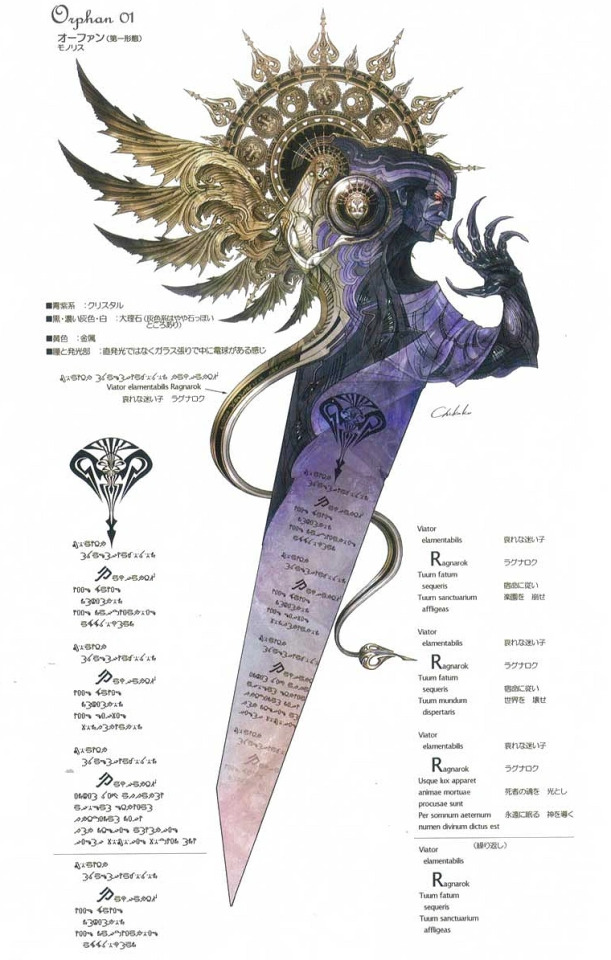
(per the Final Fantasy Fandom Wiki [X])
That’s literally The Holy Trinity But A Sword The Size Of A Building. It’s perfect.
Anyway, I love this game, because the heroes win, which is what God wants, so in winning, they lose, as was fated to be, right? Fuck All That, say the lesbians from space australia, as they turn into satan and, as satan, stop God’s shitty metal moon from crashing into space australia and destroying all life.
((this awakened something in me, though, as is becoming a theme, I wasn’t aware of it at the time. actually hold up I’m gonna rewatch that sequence.
((yeah okay wow on review that was aggressively cheesy and had a whole bunch of weird emotional whiplash that just leaves a super-bad aftertaste. I don’t really like it as an experience, but big bazonga lesbian satan with arms for hair is still a look-and-a-half.))
The whole thing is not entirely unlike if meteor was also Midgar, and there’s more than a few points where I went, hang on, are they trying to evoke 7 here? “Lightning” is ex-military and bad at emotions, Sazh is a black dad w/ guns and emotional trauma and I love him, quirky pink healer girl who might be an alien is here, the game starts on a train and leads into a robot bug fight; obviously it’s not one-to-one but the connections are there for a brain like mine to make, and only more prominent for the fact that FF7 was the more satisfying game.
((I cannot speak to 13-2 or -3; 13-2 was fun up until the enemies were abruptly 30 levels higher than me, more or less a mandate by the game for me to do all the side content, which I was not on-board with. I skipped 13-3 entirely, especially when I learned the whole game is on a timer. did not and do not need that stress in my life.))
- - - - -
But okay, FF13 was “too linear” and wasn’t doing super great. Enter Final Fantasy Versus 13, by which I mean enter Final Fantasy 15 actually, we don’t need any more of this 13 crap. And once again, I enjoyed it! ...Right up until it was bad.
Final Fantasy 15 was not a finished game, and we know this for certain now, because all its DLC was to make it a finished game. At the time, though, there was uncomfortable and inconsistent story pacing, only one playable character, relatively sparse combat mechanics... but it was open-world, and hey, that’s what you wanted, right? open, non-linear environments? I picked it up because, Teleporting Swordsman With a Motorcycle Sword. I am of simple pleasures, and those are they.
Of the little I remember, one point that’s stuck with me is the sequence following the Leviathan fight. See, we’ve been talking about fate and destiny and how Final Fantasy likes to spite them. Here in 15, our main man Noctis doesn’t want the destiny he’s been burdened with, to Become The King and Save The World from the Coming Darkness, or whatever. He’d really rather be doing, anything else? like hanging out with his buddies or actually getting married or, I dunno, grieving the death of his father. Nope! You don’t get to do that. Go find the ghost armaments of your dead ancestors so you can ~saaave the wooorld!~ I would have been in college around then, so, eminently relatable.
Now, on this journey, you meet a guy called Ardyn. He’s the sort of character that was built as an attack on me personally: sleazy, charming, possessing airs of casual familiarity with people he’s never met, kinda helps you out in tight spots, and also, by the way, vizier to the empire that killed your dad and wants you and your friends dead too. But not in the “secret good guy” way, he just likes fucking with you! he’s perfect.
Right up until the Leviathan fight.
See, Lunafreya, your betrothed--
((I’m so mad about this stupid, stupid garbage. I love Lunafreya on principle, but the game doesn’t bother to give her screentime. you only ever hear about her incidentally, which can be cool if you then meet the character and get to compare/contrast what you’ve heard, but the initial release only has her show up for this one chapter, and your party doesn’t really get to interact with her that much.))
Your betrothed is here and she’s some symbol of the peoples’ hope, right? she’s got light magic or something, and can actually commune with the gods. the gods are on your side, but you can’t actually understand a word they say, but she can, and that’s sick as hell. anyway.
You lose the fight against Leviathan, because you’re a shitty emo teen who doesn’t know how to use your ghost swords, and she got beat up earlier when Levi got all pissy at being summoned. And then Ardyn shows up in his magitek dropship.
Now earlier, Ardyn had Luna as his captive, completely at his mercy, and right now, he who would be king of kings, destined to save the world from darkness, is clutching at rock in a hurricane, beaten, wounded and dying.
Of the two, which do you think he stabs to death?
if you thought, “the protagonist, which will allow him to win, and subvert Final Fantasy’s themes of defying fate by having the villain be the one to do it, forcing everyone else to scramble for some alternate solution and deal with the fallout,” congratulations! You win disappointment, because that idea’s cool as hell and they didn’t. fucking. Do it.
((Ardyn, before this, had given me major Kefka vibes, and thinking on it now, the world descending into darkness in the 15 we never had could have played with even deeper parallels to FF6... but I never played 6, and that FF15 doesn’t exist, so... I’ll leave that analysis to better scholars.))
now, with the benefit of hindsight, that was never going to happen. too long in development hell, game had to ship, had no time or budget for mid-game upheaval. but at the time? made me lose any interest I had in Ardyn, made me mad at the developers for passing up on fulfilling the themes their series had explored in past, made me almost stop playing the game. I’m still mad about it for crying out loud!
((thinking about it gets me tensed up, coiled, with that sort of full-body thrum that’s best conveyed with letters that jitter around. best I can do here is bold italics, but it doesn’t have the right energy. it’s a fleeting feeling, but when it’s here? god. given the men that wrote this scene I would fight all of them and win.
((inhale...
((exhale...
((and move on.))
We, the player, never really meet Luna, so there’s no real... impact, no substance to it. It’s sad, but impersonal. villain kills damsel to inflict manpain on hero. that’s it. we’ve seen this song and dance before.
But kill Noctis? The character the player’s been controlling all this time, who they know intimately? Now it’s personal. Now your party members’ grief is a mirror to your own. And now you get to play as Luna, maybe? give the game time to flesh her out, have her bond with your old companions over their shared grief, and maybe use her connections and public speaking skills to rally the people of the world, in a perhaps-vain attempt to resist the oncoming darkness, while simultaneously using that public-facingness to drive her to hide her own fear and hopelessness...? That’s a complex character ripe for drama and tragedy right there! And then her, at the head of a story about people coming together to solve a global calamity themselves, rather than await their appointed savior?
Even then, but especially now... You can see the appeal, right?
- - - - -
Lemme step back and zoom out for a moment, because there’s one more kind of Fate to discuss before I finalize my thesis. Yes, I promise, there is a point besides being mad at FF15, this is still ultimately about Remake. Bear with me a little longer.
See, Remake’s premise is that it’s not quite FF7, but that itself is predicated on Remake being essentially FF7. Certain things must be in the Remake series, or it will cease to be the Final Fantasy 7 Remake series. The developers have gone on record saying as much, that they’ll still cover the thrust of the original, and that makes a lot of sense from a development standpoint. Building on an existing framework saves loads of time, and lets them focus on details as they have in Remake.
((I think they've already set up an in-universe justification for this, too. The party may have defeated the Whispers at Midgar, but the Whispers are the will of the planet. The only way to truly defeat them would be to defeat the planet itself, which: kind of the goal of the villains!
((a bit ironic, because the villains are the Whispers’ means to keep manipulating events. Remake backends a very large portion of the plot, and I don’t think Rufus seeing the Whispers is a throwaway detail. The party chases Sephiroth by chasing Shinra in the original, so even if the party has shaken free of the direct influence of the Whispers, manipulating Shinra should in turn manipulate the party.
((on top of which, Rufus prizes power, and the power to change or control fate-- something both the party and Sephiroth have seized-- would be as enticing as anything.))
But this begs the question: How much of Final Fantasy 7 is necessary before it stops being Final Fantasy 7? Do you need all nine characters? The Weapons? Rideable chocobo? Breedable chocobo? What about locations? Can you drop the Gold Saucer? or Mount Condor? or Mideel? How many minigames am I holding up? These are necessary questions, but so is this:
“Would a one-to-one recreation of the original game have the same emotional impact as when it released, twenty-three years ago?”
- - - - -
Now, the phrase “emotional impact” is necessarily kind of nebulous and subjective, so lemme dig into that a little bit.
The first significant chunk of the original FF7 takes place entirely in Midgar, which is one huge city. Every screen is densely packed; movement is typically constrained to narrow corridors and industrial crawlspaces. The whole world is deeply claustrophobic and visually hostile, by design.
This is FF7 for the first few hours, before a motorcycle chase deposits you outside city limits, and then... you hit the world map, and everything changes. The world is rendered in three whole dimensions, now! (Then, a technological marvel in its own right.) There’s a sky! There’s a horizon! Grass, mountains, the ocean!
Boundless, terrifying freedom.
From a mechanical standpoint, there’s only one real destination, an A-to-B with random encounters before a small enclosure with an inn and shops, no real change from what you’ve already been doing. But the mood? Everything’s fresh and new, now. Everything’s an unknown.
So, how do we do that again, two-and-a-half decades on?
Let’s say, something like this: Remake 2 starts with Cloud and Sephiroth en route to Nibelheim. For new players, this provides immediate intrigue: why are these mortal enemies hanging out in a truck? how did they get here, where are they going? For veterans, it’s familiar: oh, we’re in the flashback sequence.
For both, it provides mechanical familiarity. We just finished last game hanging out in Midgar, a bunch of town squares with shops and cutscenes connected to hazardous corridors. Well, Nibelheim’s a town with shops and cutscenes, connected to a monster-filled anthill and capped with a reactor. We know this. We’ve done this. We can do this again.
And when the flashback ends, we’re in Kalm. Another town, maybe with sidequests this time; Midgar looming in the distant skybox as a reminder of how far we’ve come.
And then you leave Kalm, and the camera zooms out, and out, and out...
Remake is essentially 7, and you can’t have the impact of 7′s world map reveal if Remake isn’t functionally open-world too. Square has plenty of experience with open environments, however successful their more recent attempts have been; I’m confident that the have the ability, at least, to craft an expansive world that feels appropriate to FF7.
((I’d like to take a moment here to talk about FF14, which mixes both compact twisty dungeons and wide-open overworld zones, and is necessarily wildly successful to still be operating as an MMO... but though I have played it briefly, I don’t claim knowledge sufficient to go in-depth. The point is, Square not only can make a game like that, they have, and are, and apparently possess non-zero competency. I have worries, but I’m not worried, if that makes sense.))
So, can you recreate a given kind of emotional impact? Yeah!
Can scenes from the original Final Fantasy 7 be rendered into a new context, more-or-less as they were? Absolutely!
Would a one-to-one recreation of the original game have the same emotional impact as when it released, twenty-three years ago?
- - - - -
Aerith dies.
If you opened this post and didn’t know that, well. There were spoiler warnings up at the top, the game’s more than two decades old, and the spoiler itself is basically a piece of pop-culture, up there with space dad and wizard killer. There’re probably plenty of people who know next-to-nothing about Final Fantasy 7 except that Aerith dies.
Everyone knows because, at the time, it was so big a thing. This was a title that Square hyped to heaven and back to push JRPGs into mainstream western markets, and it worked. And this was before major death was so common and arbitrary as it is today; even now, Game of Thrones and its ilk are a relative rarity. The death of a protagonist or love interest wasn’t a new thing for games, or any media really, but usually you knew it was coming, or it served some purpose. Aerith’s death was sudden, arbitrary, you’re almost immediately thrown into a boss fight so you don’t even have time to process it right away, and it’s the first stone in an avalanche of other pointless arbitrary tragedy. It’s an obvious narrative setup for the endgame confrontation with Sephiroth; instead, Cloud has a breakdown, Meteor happens, and now there’s an entire Disk 2.
Fandom has always been fandom, even before the continuous immediacy of the modern internet, but... people wrote letters to Square, and got sad on message boards. There’s an entire subset of forum signatures, back when those were a thing, that you could sort as “people fucked up over Aerith dying.” And again, this was the world. Not just Japan, or Asia, but everyone.
((Or, everyone with the finances to have a PS2 and/or an internet connection. Gaming as a pastime remains way expensive, whether played or watched. But you know how it is.))
And that’s the problem with answering that question.
See, FF7 is a lot of things, but for better or worse, it is defined by Aerith’s death. It’s one of many factors, but you can’t... leave it out, right? or it wouldn’t be FF7 anymore.
Aerith dies in FF7, and everyone knows it.
- - - - -
But Remake has promised, repeatedly, that things will be different this time. Everyone is coming together to defy fate, and Cloud in particular is here to keep Aerith from dying. Bodyguard jokes aside, Cloud repeatedly has flashbacks (flashforwards?) to Aerith’s death and the events leading to it. When he meets her in the church, when they cross into Sector 6, twice in the final battle. Hell, the very first time they meet, Sephiroth taunts him about not being able to save her. Even from a metatextual standpoint, since everyone knows Aerith dies, that’s like, The Most Obvious Fate To Change.
If, after all that, Aerith still dies? It’s not just tragedy, at that point. That’s the developers, actively lying to the player about their intent in making this game series. That’s frustrating, and immersion-breaking, and when said death is likely to still have one or more entire sequels to come after? maybe not great for sales! I know I didn’t bother buying the complete edition of FF15; I couldn’t bring myself to care enough about a game that set up this cool possibility, and then just, failed to deliver on every count.
And, Remake is being made for two audiences. I’ve said “everybody knows Aerith dies,” but that’s not really true, is it? It’s been 23 years, after all. Remake could well be someone’s very first Final Fantasy experience. That’s why they’ve been telegraphing Aerith’s death so hard. Not everyone knows, but at least everyone can guess. Is it fair, then, to this new audience, with potentially no knowledge or understanding of the legacy of this flashy new action game, to foreshadow tragedy in the future, have everyone come together to say, We’re Going To Stop This, and then... not? Is that good writing? Is that satisfying? When this is a multi-game and potentially multi-console investment of time and money, is this, as a newcomer, a story you’d want to keep playing?
And then on top of that, it’s 2020.
I don’t mean that in the current-year-fallacy, “we’re better than this now” kind of way. Rather, the way I felt about Final Fantasy 15 is even more relevant now. People, in real life, are realizing that the powers-that-be are failing them, have failed them, have been failing them for far longer than twenty-three years. The people that already knew that are actually showing up for each other, to spite what felt and feels like inescapable fate and finding that, together, they might just be able to ruin God’s day.
Game development is, of course, its own whole beast, and projects in motion tend to stay in motion; deviating from a plan takes time and money that Square may be unwilling to spend. But, under current world circumstances: is making a game where the hero sets out to save one specific person from their fated death, and following that with a game where that one specific person dies anyway, aside from everything else, a good business decision?
- - - - -
So... Aerith, shouldn’t die, right...? But, FF7 requires Meteor, and so requires the Temple of the Ancients and the Black Materia. And, Meteor can only be stopped by Holy, so FF7 requires the Forgotten City.
FF7 is a tragedy. FF7 demands blood.
...Hey, actually, hold that thought. How come Cloud can remember Aerith dying in the first place? He’s not from the future, right? He’s got a connection to Sephiroth, who is from the future... and Sephiroth can manipulate his memories...? but, why would Sephiroth let him, or make him, remember that?
Hey, how come Zack is alive, but like, in the “narrative scope” sense? Wouldn’t his presence circumvent Cloud’s delusions about the Nibelheim incident?
Hey, how come Cloud had multiple big climactic Sephiroth confrontations at what’s essentially the end of the prologue, including one that mirrors the very end of the original FF7? Shouldn’t that still come at, like, you know. the end?
Hey, how come--


- - - - -
Remake has these... Callbacks? Refrains? Like my favorite, when Sephiroth throws a train-- you know, The Fate Metaphor-- at Cloud, who absolutely shreds the thing. Or, for a more direct example:

And it frequently uses these to show that people are changing, that things can change. You know, the whole Running Theme the game has going on.
Sephiroth gets a refrain, too.
At the start of the game (give or take a reactor), in his first real appearance, Sephiroth philosophizes at Cloud, makes sure Cloud hates him, and tells Cloud what he wants.
At the end of the game, in his last appearance, Sephiroth philosophizes at Cloud, tells Cloud what he wants, and makes sure Cloud hates him.
Structurally, these encounters more-or-less bookend the game; thematically, it doesn’t exactly indicate change. Barret may or may not have come around on Cloud, and his admission that Cloud is important to him after all is, itself, important. Cloud, on the other hand, was always going to defy Sephiroth. He stands resolute, now, ready to fight rather than flee, but apathy was never on the table.
Now, Sephiroth’s whole Thing is psychologically manipulating Cloud to get what he wants, and as part of that, what Sephiroth wants is usually not what he says he wants.

All throughout the original FF7, Sephiroth riled up Cloud so that Cloud would pursue and defy him, culminating first in the Black Materia incident, and then again in the Forgotten City. None of the Sephiroth clones could survive the trip through the Northern Crater, so Sephiroth had to lure Cloud, with the Black Materia, to him, and then also convince Cloud to give up the Black Materia of his own accord. Mind control, memory manipulation and illusions were involved, but if Sephiroth could maintain those indefinitely, he probably just. Would have done that instead. Way easier,
The point is, in Remake, in addition to all the intermittent retraumitization sprinkled throughout the game, Sephiroth goes out of his way twice to directly ask Cloud, “hey, you hate me, right?” And, as part of that question, he tells Cloud, “this is what I want.” And Cloud? He hates Sephiroth, and will do his damnedest to keep Sephiroth from getting what he wants.
So. What does Sephiroth... say he wants?


- - - - -
One last aside before we cap off: This post would not exist without the valiant efforts of one Maximilian_dood. His devotion to the series kept myself and many others engaged and excited and, frankly, hopeful, in the leadup to the release of Remake, and his correlations between the rest of the FF7 series and Remake were enlightening and entertaining.
and had he not the gall to identify defying fate as a device to make aerith’s death more tragic, I would never have been angry enough to write this.
((I know, I know. Gaming and streaming and lit analysis are all hard individually, and I don’t begrudge losing one for the other two. And it was a first playthrough! I might have seen these lines sooner than some, but collating all this info was certainly not instantaneous. And Square can be hack writers at times-- see again my rant on FF15-- so even then, I can’t discount the possibility.
((but, still.
((Really?))
So, while I would like to believe that I have, by now, made my thesis on Remake’s narrative direction abundantly clear, here it is spelled out anyway:
- - - - -
At the bottom of the Forgotten City, at the shrine on the pillar in the lake, Cloud will find Aerith, who believes her fate immutable.
Sephiroth will descend, and Cloud will sacrifice himself, that Aerith should live.
This is Sephiroth’s plan.
- - - - -
Hey, thanks for reading this far! With my conversational tone and rambling tendencies, I’d have preferred to make this an audio post or, god forbid, a video essay, but I got a keyboard, and that’ll have to do. Diction is important to me, as the capitalization, italics and use of punctuation may have clued you in on, so... maybe you’ll get a dramatic reading sometime in the future? but, don’t bet on it.
Feel free to riddle me with questions, or point out inconsistencies with this big ol’ thing! I’m not exactly an expert, and I’m sure I glossed over, heavily paraphrased, completely forgot, intentionally ignored and/or aggressively misrepresented some stuff, but I love learning and teaching esoteric bullshit about The Vijigams. On that note, anything that sounds like it should be sourced is sourced from “I heard about it on social media or in a stream or youtube video one time, but if I actually had to hunt it down this whole thing would never see the light of day, and it has already been like three months,” which isn’t to excuse my lack of due diligence, but I do, lack diligence, so, tough.
Oh! but the Remake screens all come from [here]. Don’t care much for that splash screen, but, I Get It, so, whatever.
There were some other things I wanted to touch on but couldn’t really find a spot for. FF7 Remake as a metaphor for its own development, for example. Or, some of The Possibilities, like how Cloud’s death could very literally haunt Aerith, or how Remake sets up a more fleshed-out Midgar revisit that Cloud’s death specifically would make infinitely sadder.
On that note, if it was not yet obvious, I love speculation, and if they do go this direction, it’ll probably be their justification to go completely... off the rails? Remake only has to be FF7 until it doesn’t, after all. If there’s some wilder implications youall see for like... I dunno, a Jenova more fully-regenerated from also having Cloud’s cells back, getting into proper Kaiju-on-Kaiju battles with the Weapons, or anything like that? Feed me your brain juice, etc.
And, once more, for the road: this is interpretation; subjective, opinionated, and very much in denial of any kind of author-ity. Nor is this a claim on how things should be, or an assertion that this would be good or bad. Everything ultimately rests on Square's narrative design team and, we’ve touched on them already.
((but, for your consideration: I’m smart, and right))
Here’s hoping, whatever happens, we get the game we deserve.
thanks for coming to my ted talk, have a great day
#In This Essay I Will but for real this time#but hell if that's stopped me before#ff7 remake#blatant speculation#ff7 remake spoilers#ff7 spoilers#ff13 spoilers#ff15 spoilers#I dip into spoiler territory on more but these ones get a deeper dive#also if any of y'all know how to get images screen-read-able please lemme know#the screenshots are to point out that the game itself does do these things#but I don't wanna content-lock anybody out of my bad garbage#also also if the wordcount didn't clue you in:#long post#posting this right now immediately listening
8 notes
·
View notes
Note
Alirght. Dusk for the ask. I think I know the answers but well see.
my favorite female character: Kate Fuller - Kate is such an interesting character to me. I think she is very unique, both in how she is written as an individual and how she is worked into the broader themes of the the show. I understand she may not be for everyone, but she works so well for me it’s hard to put into words. Long story short, I really like that she is a genuinely good person who cares about people, and who still does selfish things. And she pays for the mistakes she makes too, she’s not bulletproof because she’s nice and has good intentions, bad things happen to her. She has so much agency in the show, and the choices she makes really matter, not just in what happens to her, but in how it effects everyone else too. She may be a symbol of light and love forgiveness, but she is also so much more than that, she’s a person with flaws too, and her flaws are one of the things I love best about her since it highlights the good in her. I’m not someone who believes people who are without the urge to sin are good people, I think that overcoming your darker nature is what makes you good. And the last season may not feature a lot of Kate as herself, but she is still a huge driving force in how it plays out, both in the impact she had on other people, and who she still is underneath Amaru’s control. Plus her faith in God is one of the more honest and nuanced portrayals of someone with a deep faith I’ve ever seen on tv, so that’s pretty neat.
my favorite male character: Seth Gecko - Seth is the perfect embodiment of his type of character, the asshole with the heart of gold. Because the show really does let him be an asshole! He pokes at people, he says stuff he knows will piss people off, he can be intimidating and controlling and bullheaded. But he loves deeply, and really does care not just about the people he loves (who are few) but also about people he sees as innocent, as needing protection. His view of right and wrong is screwed up, but it’s there and it’s strong and it motivates him. And as much as he scoffs at the idea of salvation and redemption, his belief that he is himself damned proves the lie there. He feels deeply responsible (which is one sure indicator of if a character is going to be my favorite, I love characters who feel a deep sense of responsibility) and he really does struggle with how to deal with that, and while sometimes he runs or screws up, he ultimate learns and grows and becomes a big hero who is willing to do the selfless thing when it counts.
my favorite book/season/etc: Season 3 - I think season 3 has the strongest episodes, best pacing overall, and the most interesting character setups and payoffs of the show. The first two seasons were good, but I think the show really hit it’s stride in season 3. Sure, there are still some plot holes and missteps, but they are minor. I wish overall they had more episodes so they could do more with some characters but with only 10 episodes I think they really did a great job keeping it moving towards the big finale, and paid off a lot of Dusks main themes in new and interesting ways. The monster of the week format gave us a lot of new cool mythology, and most of character growth felt earned and like a natural progression of what we’d seen so far. Plus, the Western Genre is a favorite of mine, so the two parter at the end was just so delightful to me.
my favorite episode (if its a tv show) La Llorona - Best monster design, amazing atmosphere, and some really excellent character interactions. Not only do we get the obviously great Seth, Kate and SethKate stuff, but we learn a lot more about who Amaru during the interrogation scene, and see her at her creepiest and most effective as a foil to the characters. Amaru works best for me as a villain for how she corrupts and manipulates people, and we really get to see that first hand this episode. Plus, great Burt backstory, sets up Freddie's arc for the end of the season in a cool way, Richie figuring out how to use his connections to the supernatural to help, and Brandon Soohoo gets some much needed spotlight as Scott gets tortured with his past choices in a very moving way.
my favorite cast member: DJ Cotrona - A lot of the cast seems really great, and like they really like and respect each other, but DJ does stand out as my fave due to his sense of humor, his intense love of film making and character development and just general geeking out about stuff makes him seem so charming. He just seems like a really neat passionate person, who puts a lot of thought into his performance. Plus, he is real easy on the eyes, which doesn’t hurt lol.
my favorite ship: SethKate - Someday soon I hope to finish my ship history meme, and there will be more on this ship, and why I love it so. The chemistry feels natural, and the ship deals with a lot of my favorite themes to explore in fiction, like: how identity intersects with responsibility, the power of love and forgiveness to effect change in ourselves and others, and how loving someone doesn’t make you right, or bulletproof, but it can make you stronger than you thought was possible, strong enough to do the right thing. When I think of Kate and Seth standing at the gate to Hell and drawing enough strength from each other to do the hard thing, the thing that will cost them the most, and smiling at each other so softly and lovingly. That’s the most freaking romantic thing I can think of, honestly.
a character I’d die defending: Scott Fuller - Scott holds a very special place in my heart, and I think he sometimes gets judged more harshly than he should be. Yes, he does a lot of awful things during the course of the show that result in long lasting damage (or death) to other people, but he also starts out as an angry and lost teenager still figuring out who is he, and then given and extraordinary ability to do damage in a world he is just not prepared for. He tries so hard to find a place to belong, and to define himself. Trusts the wrong people at the wrong times, and makes so many mistakes. He learns a ton of very hard lessons along the way, and while he still has a long road to travel, I really love his journey, and want so badly to see what he does next and the man he becomes.
a character I just can’t sympathize with: Sex Machine - Biggest misstep of the show for me, hands down. And it’s not the actual character (or the actor, who plays him really well) so much as how the narrative treats him like he’s comic relief. His treatment in season three as just one of the gang just bugs the crap out of me. I get the show is about morally grey characters, but c’mon man. Did they really need his “expert” advice so much that they could overlook that he was actively preying on his students? He was clearly turning them because he wanted to have sex with them, which is so gross. What layers are there to this man beyond predatory blowhard? Ok I’m going to stop there because I’m probably preaching to the choir, but ugh.
a character I grew to love: Richie Gecko - Richie is the character that grew on me the most throughout the show. He started as someone who was just so unsettling and disturbing, and by the end I really grew to view him as... not that? It’s hard to describe, because truthfully I don’t think Richie had a lot of character growth throughout the show, and he doesn’t really change so much as my view of him shifts, both as we learn more about who he was before season 1, and why he was so uniquely vulnerable to Kisa’s manipulations. But being a culebra actually does balance him a bit more, since him becoming an actual predator makes his story is less about a human wrestling with a very real darkness inside him, and more someone who has embraced that darkness trying to find his humanity. Plus, Zane plays him so perfectly. My favorite Richie is the horchata loving lighter side of him, the part that loves his brother and wants to be viewed as capable, that wants to prove himself and just isn’t very good with people or small talk or social cues.
my anti otp: Freddie/Ximena - They had some cute stuff, and good chemistry, but the romance felt very rushed to me, and just not needed. And they were so doomed from the start! I appreciate that Ximena knew and even vocalized it, but I would have much rather seen a platonic partnership develop where they were both navigating what a Peacekeeper and a culebra working together would have looked like. So, mark me down as anti there. (I’m answering this with canon ships, but I know there are people who ship Kate/Richie, I am just not one of them. I view an actual romantic relationship between them as out of character, and just not supported by what interactions we did get. I do like the dynamic they have in the show though, and would like to see it explored more if the show ever came back. And Seth/Richie seems like a fringe ship but since it does exist out there that’s also a big nope for me. double for Seth/Kate/Richie as an OT3)
Thanks for the ask! 🥰
4 notes
·
View notes
Text
So people have been trying to classpect Marvus and
most people are going with
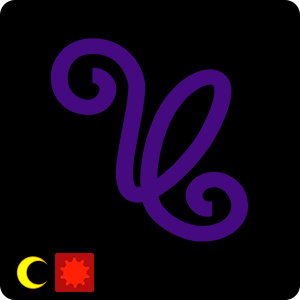
Caprist, Sign of the Audacious.
And thing is, I can totally understand why! He has an awareness of the canonicity of timelines, which we tend to immediately equate to Time-bound as sort of ‘their thing’. But, there are some things that bug me about that....
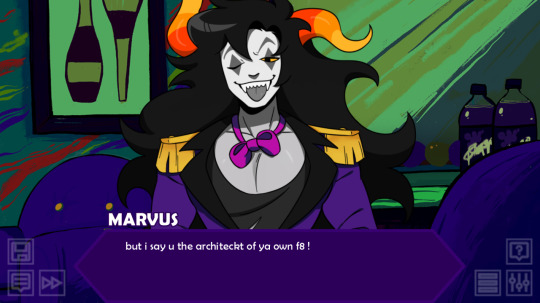
A less thought about trait that Time-bound share is the acceptance of fate.
(lots more under readmore)
Of course, different classes make that work in different ways. For Dave, it was accepting he had to fulfill every stable time loop he created with his powers or end up dead like all his doomed timeline selves. For Aradia, it was going along with what she had to do emotionlessly in order to keep the timeline in check- up until the point she was able to come back to life as Godtier, at which point she fucked off to play in the dream bubbles where everyone had already met their fate of death.
But in this case, the most important one to bring to mind is Caliborn.
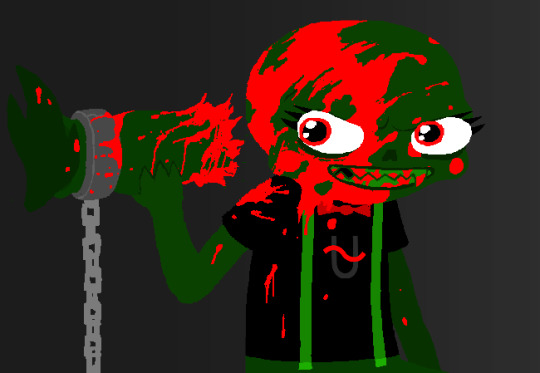
See, a lot of people have been speculating that Marvus is a Lord of Time, and a good way to figure out the truth is to bring up the case study we already have of how a Lord of Time works with regards to the concept of fate. And admittedly, Caliborn was pretty ‘grab fate by the neck and strangle it until it sees things your way’, too.
But, that was only ever the case with himself.
For him as Lord English (or Doc Scratch) it was all about already being there, propagating himself and making sure that, whatever was happening, they happened the way he wanted it to. Fate only mattered insofar as he had to be the one calling the shots. It was never about things being canon or noncanon- it was about his actions always being the only ones that really mattered.
So, while the nuances of the thought process would probably be different, you expect another Lord of Time to have a thought process that least parallels that way of thinking in nature....
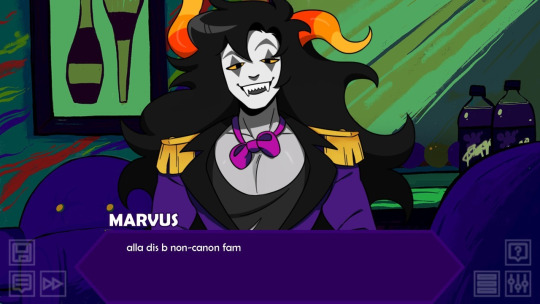
....which Marvus completely goes against.
For one thing, his thought process doesn’t seem nearly as self-centered as Caliborn’s. He spends a large portion of his time saving the MSPA reader from various deaths (which the Aspect of Time is also deeply entwined with) and generally trying to make sure they’re okay. And, mostly, gets out of it relatively fine. Admittedly, in the time paradox end he gets hurt pretty badly, but that’s only after saving the reader’s life over and over and over up until that point.
And hey, if you want the talk about someone deeply embroiled in Time bullshit...
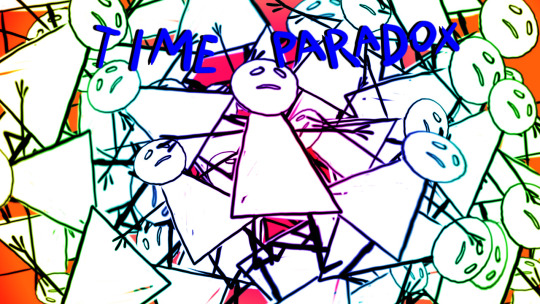
...Just take a look at the reader, who invites time to be destroyed around them over and over as they make both prosperous and detrimental choices and often gets themselves and others killed, even as they tend to accept their fate of being made to pick miscellaneous choices and creating different timelines all in the name of FRIENDSHIP. At this point, it’s pretty hard not to see them as anything but a Bard of Time.
And really, the reader was more than willing to accept they’d fucked up and invited the destruction of this route by the fact that Zebruh ended up dead. The only one who kept on stopping it.....
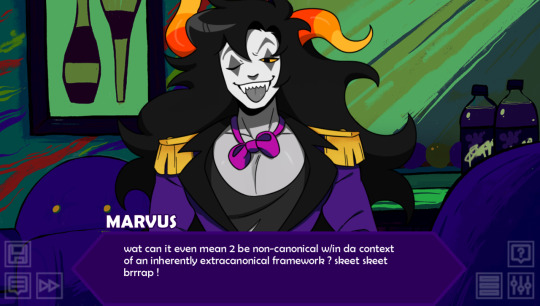
Was Marvus, who continually chose to intervene.
The main thing that people point to when it comes to Marvus being Time-bound is the fact that he seems to be aware of timelines to some degree. But, really, his speech there wasn’t really about time itself. It was about how all paths and choices matter, no matter how canon they are considered to be, as they become yet another clue to be put together and interpreted in various ways by those mindful enough to pick up on it.
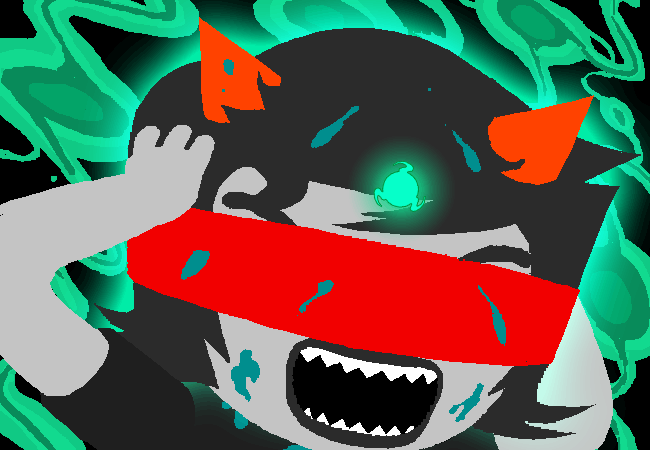
Plenty of people seem to forget that lots of aspects deal with timelines and the nature of them- it’s simply that each aspect does so from a different angle. Time of course deals with timelines in the most obvious manner, with regards to making sure things turn out the way they’re supposed to and going along with the whims of fate; Light is about choosing the path that leads to success whether it’s the ‘main’ timeline or not; Breath is about freeing a character from the bonds of a narrative so they can do what they want, with the timeline only being impacted in a tangential manner.
And Mind? Mind looks at the timeline and sees all possible options, based on different choices.
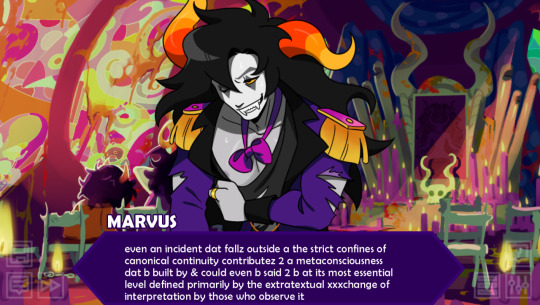
And Marvus’s entire monologue in the time paradox end was all about how all options matter and even if it’s not the ‘successful’ one it’s still important insofar as it gives more information and data to extrapolate from to better understand and interpret things, which is a classically Mind-bound perspective.
And it’s not just that! Choices are only one possible interpretation of the aspect of Mind. Know another thing that falls under the domain of Mind?
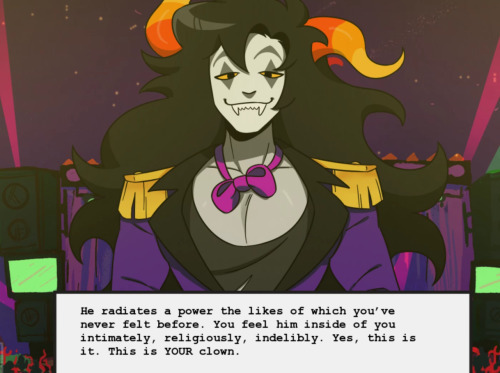
Thought.
Isn’t it interesting how literally everyone seems to adore Marvus? The reader even points it out as they fall for it as well - one look at clown, and he’s the most important person to them, how things go for him and how well he’s doing becomes the centerpoint of their internal dialogue. Even consideration of promises only matter in how that’ll bother Marvus and if that’s okay.
Without even meaning to, Marvus dominates the Mind of everyone who looks at him.
It should be pretty obvious what I’m getting to here.
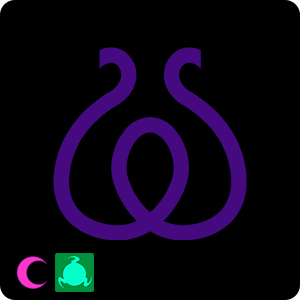
Capriza, Sign of the Rigid.
Marvus, to me, has pretty obvious traits of a Lord of Mind (which also contrasts well with Boldir’s Muse of Heart). And we already have Karako as our purple Mind-bound Prospit dreamer, which means that Marvus is more than likely a Derse Dreamer by default.
And, Sign of the Rigid? I mean, y’all have rock hard cloners (clown boners) for him, so that seems like a pretty apt descriptor. Plus the fact that the sign itself looks like it could be:
balls
tiddy
a teeny-tiny waist and big ass with the crotch circled
and due to how so many people want to choke him down bad, any and all of those seem relevant.
Of course, I still have some more off-the-wall theories about what his sign could be...
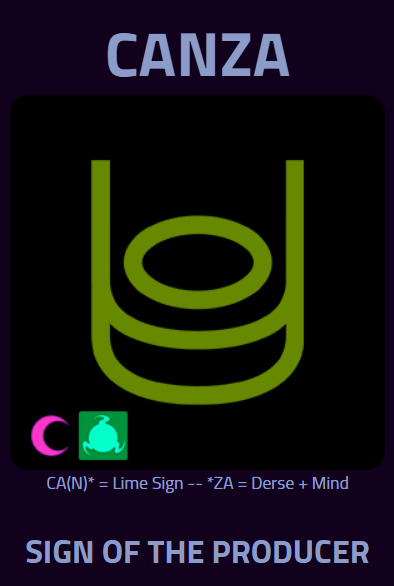
...but this is already gonna be long, so I figure it’s best not to get into that now.
As always, feel free to respond or argue with me! I love talking to people about this stuff!
#marvus xoloto#marvus#xoloto#hiveswap#hiveswap spoilers#hiveswap friendsim#hiveswap friendsim spoilers#friendsim spoilers#friendsim chapter 16#theory crafting#well really it should be called hypothesis crafting but what can ya do#also all this is DEFINITELY NOT because I want Marvus to share the same aspect as me#NOT. AT. ALL.#>.>'#...okay only a LITTLE because of that.
267 notes
·
View notes
Text
Banana fish ending pt3
The end in a nutshell: Ash reads Eiji's letter and seems to get lifted by his words and excited but he is stabbed by Lao so randomly decides he might as well give up instead of getting help and try to start a new life like he seemingly longed for just 5 minutes ago. I don't really want to see the ending validated, legitimized and made more deep than it is anymore. Most people seem to be desperately insistent to a ridiculous degree that things would have gotten even more ugly somehow had Ash lived. It's because we are used to only bad things happening to Ash during the timeline and also to find an excuse his death was for the best despite everything else but it's obviously a very harmful message for people who have gone through similar things. To be fair I don't think Yoshida really thought about such consequences, she just aimed for the tragedy and big knockdown ending which she achieved but that doesn't mean we shouldn't. There's a prevalent narrative how inevitable this kind of ending was, how it would have or should have happened anyway at some point and the way it happened was at least ~tragically beautiful. People really go all apologetic over it and get adamant Ash couldn't have/get anything in his life ever. It's only real if he suffers permanently and irredeemably forever or chooses his only other way- to end it all. Nobody says if Ash didn't die it would have been perfect and easy from now on but to insist Ash's destiny is to be tortured with new burdens eternally or die is kinda overblown. Such exaggerations and interpretations are probably a fault of the whole story- we get a ridiculous pointless string of terrible things happening one after another and senselessly piled on him. I've been wondering if it's supposed to make us dread he's going to like, get his arms and legs cut off next and corner us into praying for his death as a sweet relief. It feels weird reading people listing all the made up ways it would for sure go wrong: how Ash's life would have been terrible agony all the way through still even after BF affair ended and his enemies are dead, how obviously alone he would have been and how him living means Eiji would have been surely killed, how he wouldn't have been able to move on always fighting for survival, his life one big regrettable waste until he dies unglamorously- just to prop up the argument that Ash must die and it was his best option in the best moment. All other possibilities would inevitably suck, such is real life and especially Ash's. Basically devaluing Ash's life and glorifying his death. Just to come to terms, clear the doubts, the confusion, lack of closure and relief the ending brings. It would all suck Ash wouldn't have offed himself otherwise, right? There's still too much romantisation of death and suicidal ideation and people buying into it.
It’s very easy to use csa as a tragedy vehicle. Many justify this choice the author had him made and try find explanations how he just had to, present it as his ~best option~ and what's more disturbing romanticise suicide, sending a message that hurt people don't get a chance to have a life anymore, they are doomed to be a victim and nothing more than damaged goods forever. In their plight to make that death seem better than it is they tell real people who suffered abuse they're as good as dead because even someone like Ash, who has finally everything going for him at the end, is better off in a grave as he can literally expect nothing good from his life and will only bring harm to people he loves as if he’s radioactive. What's bugging me is people who are constantly expressing how they take Ash's trauma seriously and are so understanding of him and through it of all the survivors but for them pointing out the gravity of it only brings to constantly imply there's only one terrible direction the survivors life is supposed to go after this, how inevitably, realistically it's unworthy of living. After all the bad you get no chance for something different, because after what you've gone through it's a game over. But it's all for good, we write you eulogy and bury you already, that will be your relief and peace. Some people tend to take everything unfolding in the plot of BF like a gospel because it attempts to revolve around serious real life issues, the fact that we get no flying car doesn't mean it's truthful to them and a good and right portrayal of reality. There are many plot holes and what's more important it isn't only real and valid when you die because of trauma.
I realize people want to feel some closure and reconcile with what happened but I don't think it's fair to imply that as a survivor you have no hope anyway you're doomed to be a miserable victim and it's no wonder if you kill yourself, that's the only way you get over it. Ending should be treated at least as the worst option if we are claiming it's a realistic consequence of mental health issues that were not overcome. Except it's not only about portraying things that can happen irl too, it's about HOW they're portrayed, why they get portrayed this way and how the reception goes. There's a difference between "understanding" the seriousness of the issues and excusing, justifying, normalizing, and even glamourizing and in a way approving suicide as only solution. All it does is cement the idea that broken people can’t be fixed, foolish to even try, no chance, they are somehow happier (how?) buried and decomposing in the ground. Ash is not happier, he blighted any potential for happiness and change, he is not triumphant and didn’t "finally found freedom and at peace in death because that’s the only possible way he could do that”, he didn't retain any contentment or good things from life this way either, because he's not alive. Death is not a way of overcoming your past or a resolution of your problems, it’s quite something else. Recovery is a hard process and not as literary attractive and easy as simply killing a character with dramatic flair. But the romanticisation and at the same time justification of death as remedy has appalling implications. My disappointment and frustration comes from the way BF ending deals with real life issues it often refers to, how contrived and at the same time unbelievably melodramatic the writing is.
23 notes
·
View notes
Note
🔥 ~ anything about Supergirl
@forthewinn sent me a meme seeing if I can lower my follower count || Meme Status: Still Accepting
Send me a “ 🔥 “ for an unpopular opinion.
//absolutely unpopular and DIVISIVE topic:
I do not believe that Mon-El is the spawn of Satan incarnate.
But that’s not what I’m gonna go into. The real unpopular opinion?
I think he had the potential for a great, multi-layered foil to Kara’s character in season two and they absolutely wasted both of their characters on the arc that came. He could have been a wonderful foil for Kara’s unrealistic heroism (propagated by Superman/Supergirl all the time), but instead became a Grade B char to what he could have been
Let me tell you why (tw: unpopular rant below):
Obviously Mon-El was destined to be Valor (though that’s arguable given the fact that Winn Schott Jr. didn’t become a fellow child-serial killing maniac who wanted Cat Grant to be his mom bc his dad killed her kid, aren’t comics fun) but...what if he didn’t? What if his constant desire to live his own life/be an agent of impassiveness towards crime was...actually used? Actually discussed? Actually presented as plausible?
I thought it would have been a fascinating story to see Kara faced with someone who just wanted to be normal, but their obtaining normalcy wasn’t burdened by the overwhelming urge to become a self-sacrificial hero. Yes, Mon-El becomes a bodyguard to earn money...but they didn’t even delve into why. They didn’t really see why he was doing those things. Why he felt the need to use his powers for ‘evil’ instead of good (which...is debatable). Kara just immediately saw his character as ‘not immediately redeemable’ and that always bugged me. Broke ties (for a hot minute in season two) and the idea of Mon-El being a foil to Kara’s desire to push the hero narrative immediately shattered.
And then Mon-El changed?
What a waste of potential!
I think the hero(tm) narrative is...complex. I think it’s something a lot of comics don’t dive into nearly as much as they should--the controversial topic of ‘what is everyone’s inherent responsibility to do good’. Does doing nothing mean you’re as good as killing people if you have the means to stop it? What if you upped the stakes--what if protecting those people could kill you? It’s a philosophical question, and a truth:
Being a hero, in the real world, even for an alien, would be dangerous.
Kara has this notion that she’s not doing all that she can for 23 years of her life, so clearly that was morally wrong--to stand idly by while she could have affected change in the world. She could have been saving people’s lives--she could have spent all of that time helping them--so isn’t the same as dooming them? Kara is shown to believe the mindset in s2 that if someone has the skillset, does that mean that they’re obligated to put the needs of others over their own?
That’s the question I wanted Mon-El to ask of her.
Mon-El is introduced as Kara’s foil--culturally and morally. Inherently selfish, yes, but at the start of his character introduction...he just wanted to do nothing. And the show frames that as such a negative point from the get-go: ‘I don’t want to potentially sacrifice myself, so I’m inherently evil’. Now, in terms of superhero shows, that seems like a valid narrative, right?
Why? Why have we, as a culture, so inherently coded ‘heroes’ with ‘sacrifice’? There was an obvious reason for this during war-time when comics were so prevalent--when they were gaining such traction--and this is an idea that continuously resonates with people, imo, because it helps add weight to sacrifice, adds meaning where losing a loved one in war might have been meaningless...but is that always the most compelling narrative in a story?
Is that always the most compelling narrative to ask ourselves?
One of my favorite moments of season two was when Winn was genuinely terrified for his life because he realized how close he would come to dying on a daily basis. This cookie-cutter, rose-colored glasses version of superheroes faded into the grim reality (of which Kara had been trying to warn both James and Winn of all season but yknow hey they gloss over the fact of that, too) that being a hero is dangerous.
And Winn is not equipped for this.
They gloss over that, too, in the end--wrap it up in a neat bow of self-triumph like the pressing question of Winn almost dying was just self doubt, instead of a real danger in their line of work...but man I would have loved that. I would have loved that with Winn, and I would have fucking loved that with Mon-El.
Yes, Mon-El has superpowers. Yes, he is mostly invulnerable, but the moment he becomes a real ‘hero’ in the classical narrative sense, it immediately showcases itself as self-sacrifice (which I know a lot of people on here will think is a controversial statement, in and of itself), he becomes the hero by sacrificing himself and leaving the planet.
WTF? Why? Why couldn’t he have been allowed to be the ‘well...is being a normal alien in hiding actually bad?’ character at the bar? The bartender--a friend--a confidante--a reminder that aliens could have ‘humanity’ that allowed them to be normal? That we can make a difference in our normal lives as humans. Why did his showcase of ‘heroism’ have to be giving up his ideals to code to a more publically accepted idea of heroes?
Why do we always have to make heroes sacrificial? Why do we have to push the narrative that if we’re not saving someone (Cat pretty much said this to Kara s1 the moment she was revealed and no one can tell me that it didn’t resonate) you’re practically killing them. Why does everyone have to fight/be a vigilante/sacrifice to be a hero?
Why can’t it be dangerous? Why couldn’t Mon-El be used for this?
I would have loved to have seen the ramifications of this on the show. I would have loved to see that conversation--that debate. The fact that being a hero doesn’t always require sacrifice. The idea that Jimmy could stay at the paper ala Cat Grant and be a ‘hero’ without needing to punch things (s2 wrecked that). The idea that it is not evil or wrong for Mon-El to not want to be a hero. That it’s entirely valid as a choice for him to choose not to sacrifice himself...as long as he grew his character. Or even if that’s not the narrative they wanted to push, the show defining where those boundaries would be. I would have loved to see that struggle--that foil between Kara and Mon-El. Her pushing him too far and him pushing back.
He could have grown without becoming her ‘protege’--without sacrificing his character struggles. He could have learned how to be a good person/she could have positively changed him as supergirl/Kara while narratively showing that you didn’t have to be the Red and Blue hero in order to make a difference.
Instead, you just got some candy-cutter love story about growth. It was a waste of both characters imo. A waste of good character growth and an interesting moral question:
What’s the humanity obligation to ‘help’. What does being a hero mean?
But...yeah. Unpopular. He’s not Satan. And he could have been so much more interesting.
#mon el#ooc#out of chanel#//I just#//I know the conversation about mon el is divisive and I understand why#//but I do think he could have been a far more fascinating foil to kara#//in an atypical sense that they seem to apply foils to villains#//showcase that the world isn't always black and white#//I would have loved that#forthewinn#questions
9 notes
·
View notes
Text
Dylan Carlson’s Theme for an Imaginary Western // Interview



Feature by Kate Koenig via Premier Guitar
After nearly 30 years as the only constant member of drone-doom-metal cult heroes Earth, guitarist Dylan Carlson has released his first album, Conquistador. As the title suggests, the work espouses a fantasy world that’s rooted in history, not unlike the one explored on Earth’s 2005 Hex; Or Printing in the Infernal Method—a belated imaginary soundtrack to novelist Cormac McCarthy’s Blood Meridian. Carlson has also done soundtrack work, under his solo moniker drcarlsonalbion, for the film Gold. But this time, the music speaks exclusively to his personal vision.
Carlson has always been known for wading against common trends—an approach that’s helped him define his voice in the sparse, expansive sound of Earth. Like most artists, he’s proud of not fitting into a mold. “I make records for people. I don’t make records for guitar players,” he says. But it’s not an exclusionary statement, just one that acknowledges the detachment he takes from the technical and cultural associations with the instrument while songwriting. Drawing heavily from his tastes in film and American history, he gradually and steadily builds a world on the all-instrumental Conquistador in which he becomes more of a visual architect than a guitarist, exploring the negative space between rich, textural tones.
The minimalist, ambient compositions on Conquistador rely on the subtle personalities of Carlson’s guitar tones, which he achieves with a lot of patience, trial and error, and the perfect combinations of gear. Though, he admits, gear is not as important to him as it used to be. “There’s no magic box or magic amp. It’s all you, for better or for worse,” he laughs. Even so, he keeps a particular family of pedals—“discovering compression was a godsend”—and has refined, over the course of his career, the routes to creating the precise hues of distortion to furnish his sonic world. On the album, he worked with producer and Converge guitarist Kurt Ballou, and is accompanied by his wife, Holly Carlson (who’s also the model on the cover), on percussion, and Emma Ruth Rundle on baritone and slide guitars.

What inspired you to write your first solo album?
We had finished a lot of touring with Earth, for our last record for [L.A.-based label] Southern Lord, and we had just changed management. I had some ideas for some songs, so it seemed like a good opportunity to get into a studio and get some music done. The idea originally was in the vein of Hex, which was sort of a soundtrack to an imaginary film, and the other soundtrack I did for the movie Gold. Conquistador is also sort of Western-themed, and a soundtrack to an imaginary film. Since soundtrack work is something I’m really interested in, I hope to get to do another one at some point, but until then, I guess I’ll keep doing imaginary film work. [Laughs.]
So if Conquistador is a soundtrack to an imaginary film, is that film a Western?
The era that Conquistador envisions is during the initial collision between Europe and the New World. When I was in junior high, I lived in Texas, and we had a Texas history class where I read about a conquistador. He had a Moorish squire named Esteban, and they went to what was then Northern Mexico, now the American Southwest, and got lost for 20 years. They had a bunch of, I guess you could say … “adventures” where they were sold into slavery by one tribe and escaped, and worked with another tribe—basically, things didn’t go as planned. The album was more based on this memory of the story rather than the specific text. I’ve also been influenced by a number of my favorite films, like The Fountain by Darren Aronofsky. So it was a bunch of little things all bubbling around.
Is your guitar playing usually guided by that kind of visual experience?
I’ve always been visually oriented when it comes to guitar playing. When I first started, I’d find patterns on the guitar and see how they sounded, as opposed to being an ear player. And as I’ve progressed, I’ve become much more of an ear player. Also, since the title is the only verbal cue to describe the narrative arc of the song, I’m very conscious of the way the title looks or sounds. I’m always trying to look for something evocative, ’cause I’ve always believed there still needs to be narrative arcs to the songs—even songs that I do with a lot of repetition. I believe that there should be a narrative arc to the record as well, which I feel is something that’s a bit lost with the advent of the CD, and now digital media. It’s the order of the songs that makes a great album, as well as the songs themselves.

How do you give your music a narrative arc?
Usually it’s through textural cues. I’ve always been interested in subtle dynamics in music. The thing that always bugged me about grunge is it reduced musical dynamics to “here’s the quiet part and here’s the loud part,” and I’ve always preferred music where the textures and the interplay of instruments build small crescendos and dynamics in that way. The intensity in the playing, you know? And then I was lucky in that Emma Rundle joined me to add her music to mine.
I’ve definitely always been a believer in that approach—where if you limit the options in certain things, it forces you to become more creative with what you have. I’m also a strong proponent of what I like to call “happy accidents.”
What is the ratio of improvised versus composed music on the album?
I don’t know … 80/20? [Laughs.] The riffs were there, but the structures were done in motion. And then a lot of it had to do with the fun of looking for guitar tones. Some songs are more composed than others, but even with the ones where there’s a strong compositional presence, I’ve always believed in leaving room for improvisation. The most composed song is the last song of the album, “Reaching the Gulf.” There’s the basic riffs, but then the arrangements sort of happened naturally as I played them in the studio, so they have much looser organization. Which, again, I think helps with the narrative arc of the record, because it’s about leaving, heading into the unknown, and then stuff happening that you don’t foresee, and then the return at the end to a controlled environment—or at least a more controlled environment.
What is it that draws you to repetitive patterns?
I’d always hear stuff in other songs and be like, “that’s a great riff, why don’t you just keep going with that rather than immediately jumping to another one?” I always liked Indian music and psychedelic stuff and, obviously, blues. Maybe it’s this atavistic thing from my Scotch heritage, like the bagpipe or something. [Laughs.]
How was it working with Emma and Holly on the album?
I played a show with Red Sparowes and Marriages, bands Emma was playing with, and I borrowed some of her gear that night. And then she’s on [our label] Sargent House, and my wife, Holly, and Emma got along quite well. I think she’s a fabulous musician and she really added a lot to the proceedings. Holly was travelling with me at the time, and we needed extra percussion. She played piano when she was younger and sang in choir. She was also a dancer, a belly dancer, so she has good rhythm [laughs], so that’s sort of how that happened. It was also my first time working with Kurt Ballou, which was really enjoyable. He has a cool studio and a really good ear and a lot of helpful ideas. At the same time, he doesn’t force them on you. He’s really open to your ideas. And then he has a lot of interesting equipment. But it was a very easy record, in a lot of ways, because it flowed quite well and everything that needed to get done got done. I enjoyed it. I hope other people do, too.
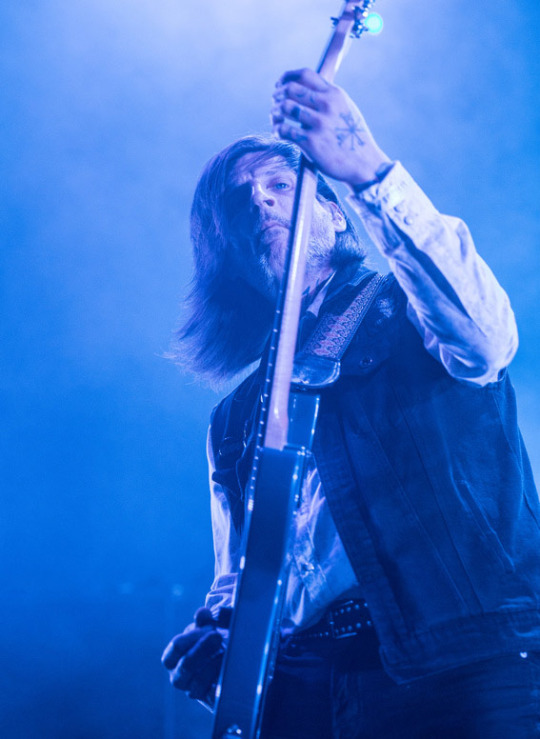

Let’s talk about gear. How important is your gear to the songwriting process?
I’m much less gear-centric than I used to be. I realized over the last few years that no matter what I use, I’m going to get my sound and be me. And obviously, there’s slight variations based on gear choice, but I realized I could have saved myself a lot of time and money in the early days.
What guides your preferences?
I don’t like a lot of pedals. I think there’s almost too many to choose from nowadays. [Laughs.] I see some people’s pedalboards and I’m, like, confused. I think some of the prices on gear lately are ridiculous. You don’t need to spend $10,000 to sound good. I’ve always been a big MXR fan. I use a Custom Comp, which is the sort of nicer version of the Dyna Comp. I love the regular Dyna Comp, too, but I find that the Custom Comp has a lower noise floor. And then I like the Shin-Juku Drive for distortion. Then, I just got this HBE Dos Mos, which is a dual MOSFET preamp. I really like it because it allows me much more textural options, where the distortion becomes a texture, too, so I can also do a loud cool sound. In the studio, I’ll end up using more modulation to separate the tracks and to color them. Live, I reduce the number of effects I use.
What about amps?
I’ve actually gone solid-state. [Laughs.] I have a bunch of tube amps lying around and they all need servicing and are annoying to carry around. Right now I’m using a DV Mark 50-watt solid-state head, and I have a Crate Power Block solid-state head. I think a 50 watt is the largest head you’d ever really need. You’re never gonna get to the sweet spot on a 100-watt head, you know? We all grew up with pictures of Hendrix with these huge amp stacks, and that was because they were playing without PAs. Nowadays, you don’t need to do that.
One of the best shows I think we ever did was opening for Neurosis in London, and I was playing an old WEM Dominator, which is basically a 15-watt amp. People were saying how great we sounded that night, and no one thought we were too quiet or not loud enough. Because a 15- or 30-watt amp will scream. People seem to forget that you double the wattage of the amp and you’re only increasing the actual volume by 3 dB. All you’re increasing is your headroom. If you want the harmonic enrichment, you have to drop the headroom.
How did you first get into guitar?
I guess my favorite guitar would be the Tele. Right now I’m on a bit of a Strat jag. I’ve played other guitars, but I always seem to come back to the Fender style. I find them the best for touring, ’cause they have the straight neck instead of the angled headstock, and they’re not finicky. They get the job done and they take the road really well—whereas set necks and headstocks that are angled are accidents waiting to happen.
How did you first get into guitar?
My parents were into music, so I grew up with a lot of music around me. But no one really played an instrument. And then when I got into music, as in buying my own, AC/DC was the first band I got into, and that’s what made me want to play rock ’n’ roll, I guess. For a long time, I wanted to play guitar, but never really got around to it. Then one day my dad suggested it, so I bought one finally on my 15th or 16th birthday. A good friend of mine at high school who was a big prog-head showed me a few chords, and that was sort of my beginning. I immediately started trying to write songs rather than learning other peoples’ songs. I taught myself the rudiments of theory. Although, the thing I’ve always tried to remember is, the music comes first—the theory grew out of that, not the other way around.
What influences your guitar playing?
I’d have to say the guitarists I really gravitate to serve the music or serve the song—people like Steve Cropper or Cornell Dupree. I’ve always felt like the thing that really motivates me is, “Is the riff something that’s worth repeating, and does it convey my conception of the song?” I always find it very interesting when people talk about a song I’ve done, and they’ll say it’s similar to something I may have thought about the song, and the landscape I may have envisioned for it.
Earlier you mentioned how the music industry on the whole has somewhat lost sight of the album. Do you think this would ever shift your approach to your own music?
When I was young, Buzz from the Melvins was talking to me and he said, “There’s two ways to do things.” He was speaking specifically of music, but I guess it could apply to other things. “You can try to jump on the trend, or what’s happening at the moment, and you might succeed famously, but you might not. Whereas, if you do what you do and you just keep doing what you do, eventually people are going to pay attention to it, hopefully.”
I’ve always tried to follow that advice. I just do what I do, and just try to keep doing what I do, and it’s obviously not the quick route, but it’s seemed to work up to this point. I haven’t had to take advice from record labels, or play songs by hit songwriters I don’t know or don’t like, or dress up in clothes I don’t want to wear. You may not have a mansion on MTV Cribs, but you can go to sleep at night and look at yourself in the mirror, hopefully.
6 notes
·
View notes
Text
The One About Dark Souls
This piece was originally slated for another publication about a year ago. It didn’t get published. So here it is.
This time, I’m confident I have him. Father Gascgoine has been plaguing me for weeks, but I’ve got it all worked out. I enter the arena, pumped up and ready to do this. For a few minutes, everything’s fine, but then I feel that telltale twinge in my hand. Before I know it, the pain’s burning up my arm and into my neck. I have to put the controller down. My poor health has betrayed me again. I’ll never be good enough to beat a Souls game.
Dark Souls is hard. That’s what it’s known for. In a world where the biggest and most successful games are built on promises about playing your own way, Dark Souls is brutal and unrelenting. FromSoftware’s magnum opus demands you take it on its own terms, a strategy that has proved wildly popular; few games can lay claim to a fanbase as passionate and loyal as Dark Souls.
A debate has raged for years over whether or not Dark Souls would benefit from an easy mode. Fans will tell you that no, difficulty is an essential element of the Dark Souls experience, that much of the game’s fun is found in its difficulty, and they have a point. Others, people who have wanted to embrace the series, but derive enjoyment in games from anything other than challenge, believe that Dark Souls would be better off with an easy mode.
Dark Souls joins all-time greats like Doom and Donkey Kong in establishing its own formula. Indie and AAA game developers alike have borrowed heavily from the Souls series, with games like Salt and Sanctuary, Lords of the Fallen, and Nioh. Before we ask ourselves whether Souls should have an easy mode, we need to understand how Souls games work.
Souls works like this: you, the player, have to travel through the game’s world, conquering its challenging bosses. Whenever you defeat an enemy, you earn a currency, called ‘souls,’ or ‘blood echoes,’ or something similar, which you use to purchase upgrades. If you die, you drop your collection of souls and respawn at the last save point, usually a physical location like a bonfire. Crucially, you cannot bank souls. This means that as your power grows, so does the need to explore world, putting yourself at risk, until you have enough souls to purchase more powerful upgrades.
The combat requires you to play thoughtfully. You must keep an eye on your stamina bar, which drains based on your attacks and movement. Draining your stamina at an inopportune time could result in an unfortunate death. Your attacks are usually animation-driven, which means that when you press a button to attack, you cannot break out of the attack animation until it has completed. A properly-timed attack means the difference between life and death in a Souls game.
These mechanics are then set in a world designed to accommodate them. Souls mechanics would never work in a game like The Witcher 3, where players could simply observe enemies and circle around them, avoiding the confrontation entirely. Souls maps, on the other hand, are built with explicit encounter design in mind. An early encounter in Dark Souls 3 features a dragon that will easily roast unsuspecting players. You rush up some stairs, get roasted, die, and start back at the bonfire, wiser now than you were before. As you progress, you discover shortcuts that make traversal significantly easier.
Over time, you learn about the game’s world. What seemed like cruelty at first is playful and mischievous. The world becomes more readable. Dark Souls thrives on initial surprise and eventual mastery. “Git gud,” the fanbase’s mantra, isn’t so much a statement of derision as a description of the player’s evolution. The more you play, the better you become.
One of the big appeals of turn-based games like XCOM and Civilization is the way they convince their players to keep going. “Just one more turn,” you tell yourself, and before you know it, it’s 5 in the morning and you’ve been up all night and have nearly liberated Earth from an alien menace. The Souls games are like that too, but they use difficulty to accomplish the same thing. Get instakilled by a cleverly-placed boss? Before you know it, you’re back at the nearest bonfire. “That was a cheap death,” you tell yourself, “I can totally get past it.”
Dark Souls is a game of mastery, expertly crafting an emotional narrative to accompany your growing skill. Overcoming that seemingly-impossible boss is thrilling. Laughing along at the designer’s jokey ambushes is enjoyable. Souls engages you, draws you in, and delivers some of the best emotional highs in gaming.
It’s unfair to say that Souls is just a hard game; there are thousands of challenging games out there. Dead Rising 2 creates challenge through time management. Ikaruga’s difficulty is based on player reflex. Souls is a game that uses its difficulty tuning to help establish its compelling formula. Without the difficulty, so much of what makes Souls such a brilliant series would be lost.
Despite this, I wish the Souls games had an easy mode, because I can’t play it like you. I want to share in the stories and strategies. I want to beat Father Gascoigne with a Donkey Conga controller and put the video up on YouTube. I want to master the game’s systems. I want to be a part of this passionate and vibrant community so much, but I can’t.
I can’t because my body is shutting down.
Twelve years ago, I got sick. At first, it was just mild fatigue. Doctors said it was some bug that would pass. Family thought it was teenage laziness. Then it got worse. Prior to getting sick, I’d been learning to fly planes. I used to climb regularly at the YMCA. I loved boating--whether it was a 50 mile camping trip or whitewater rafting, I was there. Within months, I’d almost completely lost my ability to function. One doctor told me that, after looking at my lab results, she was amazed I had the strength to get out of bed at all.
It took four years to get a diagnosis, but instead of having some name to give my illness, like cancer or lupus or something, I was told that some genes just didn’t work right. It was a lot more complicated than that, but that’s the gist of it. As a result, I suffer from chronic pain and chronic fatigue, and I also have all the symptoms that come with a severe lack of magnesium, because my body doesn’t absorb it properly.
Chronic fatigue is a deeply misunderstood disease. People don’t get it. If you get cancer or multiple sclerosis, there is some degree of understanding there. Chronic fatigue is much harder to explain. Many people don’t believe it’s real. Some countries classify it as a mental disorder, rather than a physical one. Everything I ever wanted to do in life has been ripped away from me by this illness. Without games writing, which I’m fortunate enough to be able to do from home, I don’t know how I would survive.
During her TED talk on chronic fatigue, documentarian Jennifer Brea pauses and simply states “my brain is not what it used to be.” I know what she means, because I’ve been there. I was so much more than this. Chronic fatigue consumes everything. I’m lucky because for me, there is some degree of hope. With regular treatment, I could go back to living something resembling a normal life, but since the illness limits what jobs I can take, my income is limited, which limits my ability to pay for treatment for my illness. Dealing with my illness is as simple as a potential employer taking a chance on me so I can earn enough to pay for treatment. I don’t know how I’ll ever get to a place where I can afford regular treatment, but I hope that one day I will.
In the meantime, I play games, which are an incredible escape from chronic pain and chronic fatigue. A physical therapist once told me that people like me spend 90% of our attention on keeping pain at bay. Playing games helps offload some of that stress. But, as you can imagine, playing Dark Souls style games for me is a lot harder than it is for most folks, which makes escapism challenging. So many of my friends love finding their Dark Souls groove and playing the game for hours. I’d love to experience that too.
Most of you aren’t likely to have your hands seize up after playing for half an hour, much less be drained for an entire weekend after trying and failing to take down Bloodborne’s Father Gascoigne. An easy mode for me would mean that I could enjoy these games at the same level of effort that you do.
But it’s not that simple. Disability isn’t something most of us talk about openly. Discussing it has a tendency to make people uncomfortable; some even resent having to deal with it. It’s hard to leave the house most days, knowing that most people don’t have the compassion or patience to put up with my illness. Worse still, many people go out of their way to make things worse, justifying it with some weird, self-righteous slant I’ve never understood.
I’ve had employers force me to work in conditions that exacerbated my symptoms because they thought they could convince me that my illness was all in my mind, never mind what the doctor’s notes said. Heck, I got kicked off a podcast; two of my fellow podcasters told me they were doing me a favor. Apparently, cutting off all ties would help me magically get over my illness and manage my life better. When it comes to disability, otherwise good people can do terrible things, going to great lengths to justify their abuse as “for your own good.”
Playing games with my friends or chatting about games on forums, twitter, and Skype gives me the ability to socialize with other people without having to worry about my illness getting in the way. As long as I remain untreated, I’ll be a shut-in, but I can still have human contact through the internet.
While I can talk about my own experiences in great detail, I am far from the only person whose health issues limit gameplay options. Many disabilities limit gameplay. I have a friend with severe arthritis that makes gaming on a console impossible. Two of my friends have epilepsy, which can be triggered by playing certain video games. I’ve met people with color-blindness and deafness; all of these things impact their gameplay experience.
How far should a developer go in ensuring their audience can enjoy their work? Generally, I think it’s best to err on the side of accessibility; if a game can support a color-blind mode, it should. If a designer can ensure that hearing impaired players have good subtitles, their game would benefit from its inclusion.
With my chronic pain and fatigue issues, rapidly mashing buttons in games like Bayonetta or God of War can be physically draining; alternate QTE options would go a long way towards making games more accessible. I was delighted to discover that Dragon Age: Inquisition, a huge, open world game, had an auto-run toggle button. Splatoon offers players a wide variety of playstyles, allowing players to contribute, regardless of ability.
At the same time, I recognize that not every solution is a perfect one; shoot-em-ups like Ikaruga are built to be bright and flashy. Projectiles have to be big and bright enough to dodge. These games can trigger symptoms in epilepsy sufferers, and I don’t think there’s a way to avoid that without fundamentally changing the game’s design.
There is no easy answer, but offering multiple difficulty modes, vision modes, and allowing control customization all go a long way towards keeping games accessible.
Some developers and publishers are going the distance to make sure that disabled gamers are cared for. Microsoft has recently introduced copilot mode, which allows two different controllers to control the same game. The Xbox One Elite controller is great for players with disabilities thanks to its extensive customization options. Unfortunately, Sony does not offer similar disability support, but thanks to devices like Cronusmax Plus, you can use the Xbox One Elite controller on the Playstation 4, or even a mouse and keyboard.
As my health has deteriorated over the past few years, so has my gaming ability. Destiny’s Trials of Osiris event is a competitive multiplayer event where players must win nine matches of five rounds each against an opposing team. I went on a flawless run back in 2015, but I haven’t been since. Controllers are awful for me; playing with them often results in hand cramps and muscle spasms. It’s much less painful to aim with a mouse, so I’ve been eyeing a Cronusmax with an intent to use its mouse and keyboard controls to play Trials of Osiris again.
I was deeply concerned to hear that Jeff Kaplan, Vice President of Blizzard, had argued against the use of these devices. If Kaplan’s shortsighted suggestion became a reality, disabled gamers using assistive technologies would have their consoles rendered useless, not just for Overwatch, but for all games. Kaplan also suggested letting all consoles use mouse and keyboard controls natively, which would be fantastic for disabled gamers, but it’s frustrating to hear that he would even consider the first option.
How would an easy mode in Souls work? It’s simple: let players take a lot more damage before dying. It’s a blast to watch my friends take on the dual-boss fight of Ornstein and Smough, but that fight requires some flawless timing that I can’t always pull off. I tense my muscles when I’m trying to time things perfectly; not having to worry about timing would help me avoid triggering severe pain later on.
Obviously, there are better ways to adjust difficulty, but they would require a lot more work on the developer’s part. Tweaking enemy animations to provide longer ‘tells’ prior to attacking would be a great step. Dark Souls’ movements are animation-based, rather than input-based, which means that once you press a button, your character has to follow through with the animation before making another move. Giving player input priority over animation would let players correct mistakes a lot easier.
To a hardcore Dark Souls player, I’m sure this all sounds like heresy. The suggestions are moot, of course--From is done making Souls games, and it’s unlikely that they would ever patch in an easy mode. Souls is just an example, something I hope that future developers can learn from. I would like to enjoy your favorite game as much as you do, but I can’t, not as it is.
Playing video games literally saved my life. On my worst days, games make life bearable. Games give me community and distraction. So, when it comes to the question of whether Dark Souls have an easy mode, I think the obvious answer is yes. For me, an easy mode would let me play the game like it was meant to be played without worrying about crippling muscle spasms the next day. I just want to enjoy life and spend time with friends; games I can play without agony let me do that.
Ultimately, developers are welcome to do whatever they want to do with the games they want to make. My hope is that this piece initiates a conversation about how to open doors to everyone who wants to play or make video games. Living life with disability is hard mode, and there’s no option to change difficulties. If you have the ability to help us, would you?
31 notes
·
View notes
Text
Castling is a special type of chess move. When castling, you simultaneously move your king and one of your rooks. The king moves two squares towards a rook, and that rook moves to the square on the other side of the king.
Have you guys been looking forward to our next Promised Neverland discussion? I know I have. Talking things over with Crow is always really fun and interesting. On top of that, this series is certainly generous with the potential material. I feel like we go through almost an entire series’ worth of topics with each episode. For once, that’s not a bad thing.
this was quite the episode!
If you remember, ad I’m sure you do, last episode ended on an epic cliffhanger with Norman pointing to Ray as the “traitor”. An of course, Norma’s always right. I feel like my brain still refused to accept it for a good minute. It’s like the show has already conditioned me to refuse the simplest explanation even if in retrospect the narrative hasn’t exactly done twists so much as simply shocks. Situations are often unexpected but not because we were lead to believe something else, simply because this particular fictional universe is very high drama.
That distinction — shocks versus twists — might be this show’s distinguishing characteristic! Well, that and dynamic and flawed protagonists as well as dangerously intelligent and dangerously unpredictable villains! Oh, this is Crow — I’m in bold this week.
That opening scene with the clock ticking and rapid succession jumps between the two characters was a fun, tension adding, directorial trick. Cheap but effective. In general, I feel the direction took a lot more risks this episode and I liked it. Did you?
Evaluating direction isn’t my strength, but to the extent I understand it, I think you’re right. It’s like the show’s gaining confidence in its voice. There were some relatively straight forward shots, like closeups of Norman and Ray as they realized something (I’m still not sure exactly what!). There was a shot of Ray, leaving the room after the first scene, framed by the doorway at the top of the stairs, as if the camera were on a landing between the first and second floors. It was simple, elegant, and it capture his loneliness that Emma was able to articulate later on.
it was a very deliberately paced and framed episode
The first half of the episode was basically one long expo dump with Norman and Ray having this almost quippy, slightly antagonistic chat in the room. I see your Buffy parallels here. Although the conversation was much more stern in tone, there was something in the quickfire delivery and unspoken implications that was very reminiscent of Buffy dialogue.
Now, if we can just get Anya to sing her song about bunnies being the villains… I think Gilda could pull it off! But now I’m sad thinking about Conny’s bunny, which makes me remember Conny…
Also, I was on the edge of my seat. I was watching two (only two) familiar characters talk to each other in a closed bedroom with nothing else at all going on, and I was on the edge of my seat. This is when you know you got your exposition right!
I think this proves your point about direction. I felt breathless during this scene, too, as if either Ray or Norman might do anything — explode into violence, transfer into an alien — anything! Good dialogue, well delivered, with effective pacing. That’s a heavy load for exposition to carry!
tell me more!
I have to say, Ray may be an informant, but can we really call him a traitor when he’s been doing this for 6 years? He’s gathering intel as best he can to formulate an escape plan. The boy’s no hero, but he’s merely trying to survive.
Also, if I remember correctly, they’re all 11. Which would mean that Ray found out the truth (that they were all destined to be butchered) and was trying to navigate this dangerous world all alone since he was 5 years old. Somehow, it’s difficult for me to blame a five year old in this situation.
I might have to quibble with “the boy’s no hero.” Fighting alone, well behind enemy lines, without a break, without assistance, from the time he was five? That’s why I adored Emma’s reaction…
The conversation leaves with vague results. Ray is still adamant about not destroying their chances by trying to do too much. Norman agrees in principle but is morally and mostly emotionally torn at the idea of going against Emma’s wishes. And an unsteady truce is formed.
What did you think of Ray’s grudging disgusted look and Norman’s attempt to hold back laughter? I didn’t know what to make of that…
it fascinated me
You know what they say, keep your friends close and your enemies closer. If anything, this turn of events makes me more likely to trust Ray than before. Of course I have this super weird hang up about not trusting Norman. It may be the white hair.
Right at the end of this extended opening arc, it seems that both Norman and Ray realized something pretty big. It sort of bugs me that these little kids are so much smarter than I am but I’ve learned to accept it. I really wish they would have told us what Norman figured out though. It seemed big!
I’m listening to Neil Gaiman narrate The Ocean at the End of the Pond. (great book) I’ve come to accept that when it comes to a lot of topics, kids are smarter than me! Yeah, Norman’s laugh put me on edge, too. I’m beginning to suspect that we’re only watching the outer edge of the crazy — or maybe a meta representation of it…
Ray’s interaction with Mom was one of the best scenes so far. Mom is a formidable foe but because of the construct of the story and the necessity to keep up the pretense of unity, we have not seen her actually clash with anyone except Krone and let’s face it, at the time Krone was hardly even worthy of the title of opponent. Mom and a forcibly relaxed Ray made for a much more interesting back and forth. I look forward to seeing more mind games.
Watching that scene, I had to wonder: which one of them really has the upper hand? Ray mentioned that Mom only gave him older models of things. What if they weren’t representative at all? The show has me so paranoid that I wonder if Mom’s put the pieces in place so their escape attempt is actually part of their shipment protocol! Kinda like a Hunger Games sorta thing…
it makes me captivated!
We finally got to see that Norman is in fact human and that the situation is getting to him. That nightmare was just great. It was also a nice, visually interesting sequence that put the stakes into perspective for the audience. It was a bit on the nose (a lot of the directing is unsubtle in the series), but I don’t mind that too much when the storyline has a lot going on.
I just needed to throw in a pic
The episode then cleaned up the intel by bringing Emma into the loop. I’ve said this before but Emma is not exactly as straightforward as she plays it. Of course she immediately forgives Ray, of course she gives this compelling and heartstring tugging speech about him no longer being alone. But she let her mask slip for a split second there and we saw it.
She might be the most intelligent one there.
You saw it too, right Crow? That moment when Emma realized that Ray had probably at some point sacrificed members of her precious family, and willfully decided to brush the realization aside and ignore everything it implied. The second when her mind was telling her that if he’s capable of throwing the kids to the wolves once, he could do it again, and she chose to take the risk but pretended not to understand it.
I know you loved the scene between Ray and Mom, but this was my favorite scene in the episode. You could just see her mind connect the dots — and I think she connected more than she spoke of. She has this gestalt perspective that lets her assemble the big picture with only tiny disjointed parts.
I think you hit the nail on the head — she knows who Ray is. She knows how he thinks. She’ll go along for now, but she’s on guard. What more? She’s confident she can make it work.
what’s with that face?
Finally we looped Don and Gilda back into the action. As the other two oldest kids in the place, they have the greatest odds of survival, but I’m not so sure the have the nerves required. This might be where Norman’s (somewhat kind) lie may really cost them dearly.
By not telling Don and Gilda that Conny is already dead but still conveying the great danger everyone is in, they have effectively put a ticking clock on everything and are encouraging Don and Gilda into action.
Talk about being damned if you do and damned if you don’t…
I’ve heard some fas say this exact ting (not many though)
Basically, Gilda and Emma have been observing Mom (enemy recon) and have realized that she disappears somewhere at the same time every evening. Ray comes to the natural assumption that she must be checking in with however she reports to.
Moreover, a discrepancy in the dimensions of the rooms and hallway has lead Emma to conclude the whereabouts of a secret room next to Mom’s bedroom. Naturally, this seems like a place that should be investigated but the kids want to play it slow. Not take any more unnecessary risks at this time.
Not all the kids that is. Determined to save Conny, Don storms off to immediately find this secret room while Mom is away. After some prodding, he and Gilda do manage to discover a decoy bookcase with a locked door behind it.
Their hearts were in the right place. Their minds, though? Let’s just say as bright as both of them are, they don’t hold a candle to Emma, Norman, or Ray. I just hope they don’t have to pay the ultimate price for their mistake!
this isn’t ominous at all…
As usual with this series, I had not realized that this was the end of the episode. Well not this of course. Before that someone had to be slowly opening the door to Mom’s room in time to catch them both red handed and potentially doomed. And you thought last week (or every single week so far) was a cliffhanger!
That’s how I guessed it was over despite it seeming like 10 minutes. I was like, “Dang, that’d make a good cliffhanger… d’oh!”
Also, no Krone at all this week?
She’s still sulking, and it takes time to stitch her doll back together! Interesting point, too, how Ray says mom brought Krone in to watch over him for failing to keep Emma and Norman away from the gate…
So this is it for this week. I’m sure I’m not the only one who can’t wait for next week. Please feel free to catch up on our past episode reviews in the meantime:
The Promised Neverland Episode 1 – 45,000,000$
The Promised Neverland Episode 2: 121045
The Promised Neverland Episode 3: 181045
The Promised Neverland Episode 4: 291045
and of course – I got a few more caps for you guys!
The Promised Neverland Episode 5 –Castling Castling is a special type of chess move. When castling, you simultaneously move your king and one of your rooks.
0 notes